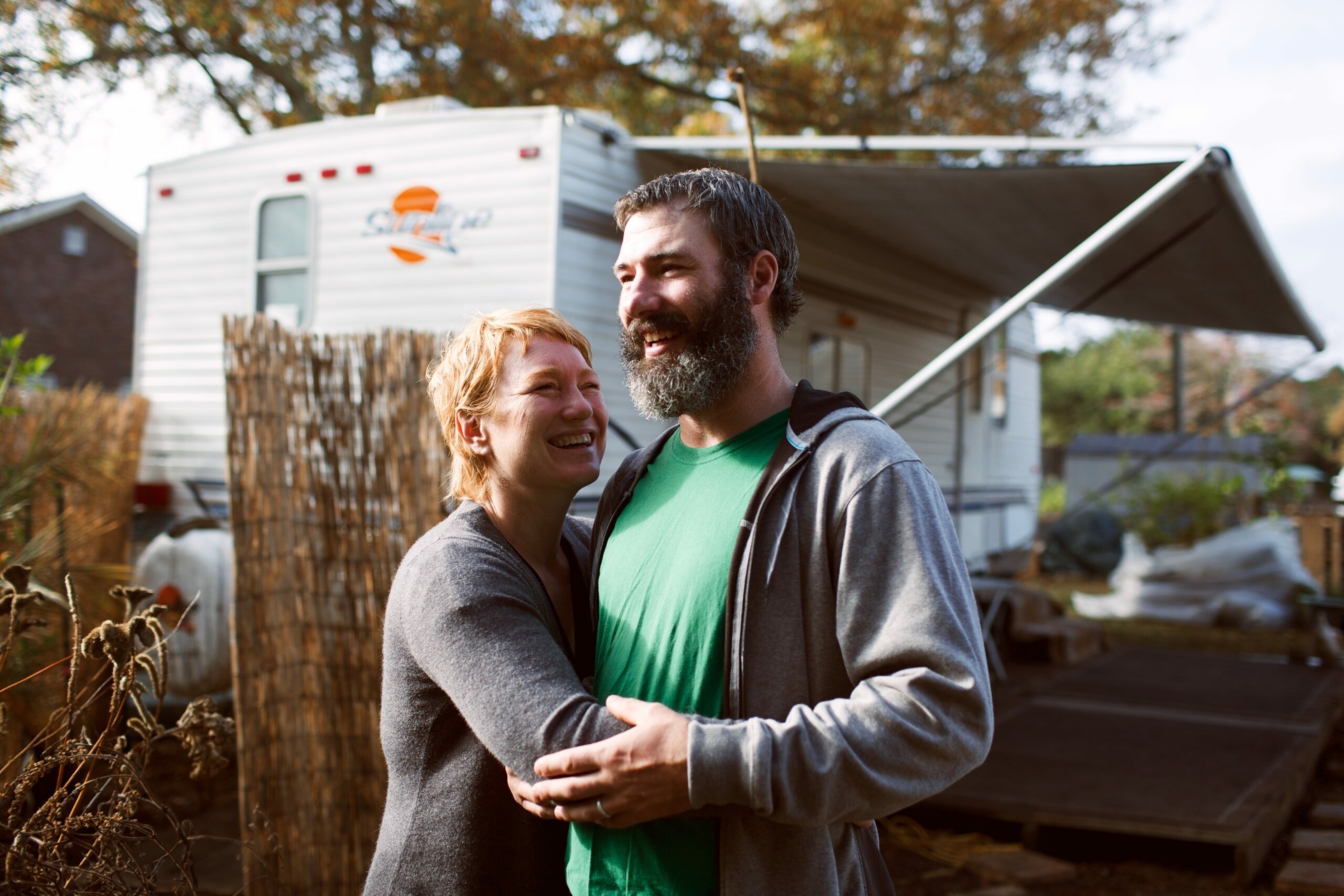Rustin and Teresa Gooden are South Carolina’s humble salt harvesters. They live on an acre of land in McClellanville, plotted with vegetables and a greenhouse with their three dogs, two cats, three pigs and 19 chickens.
Every day the two rise before the sun with a thermos of coffee and skim across the waters to work their friend’s clamming beds. They return to their acre by noon, clams in hand and covered in plough mud, ready to monitor the salt trays.
They first started producing salt for themselves in 2012 with a modest setup comprising their kitchen stove and sea water from their namesake Bulls Bay. Charleston welcomed their project from the outset with open arms, inspiring them to leave their jobs and pursue harvesting as a full-time project.
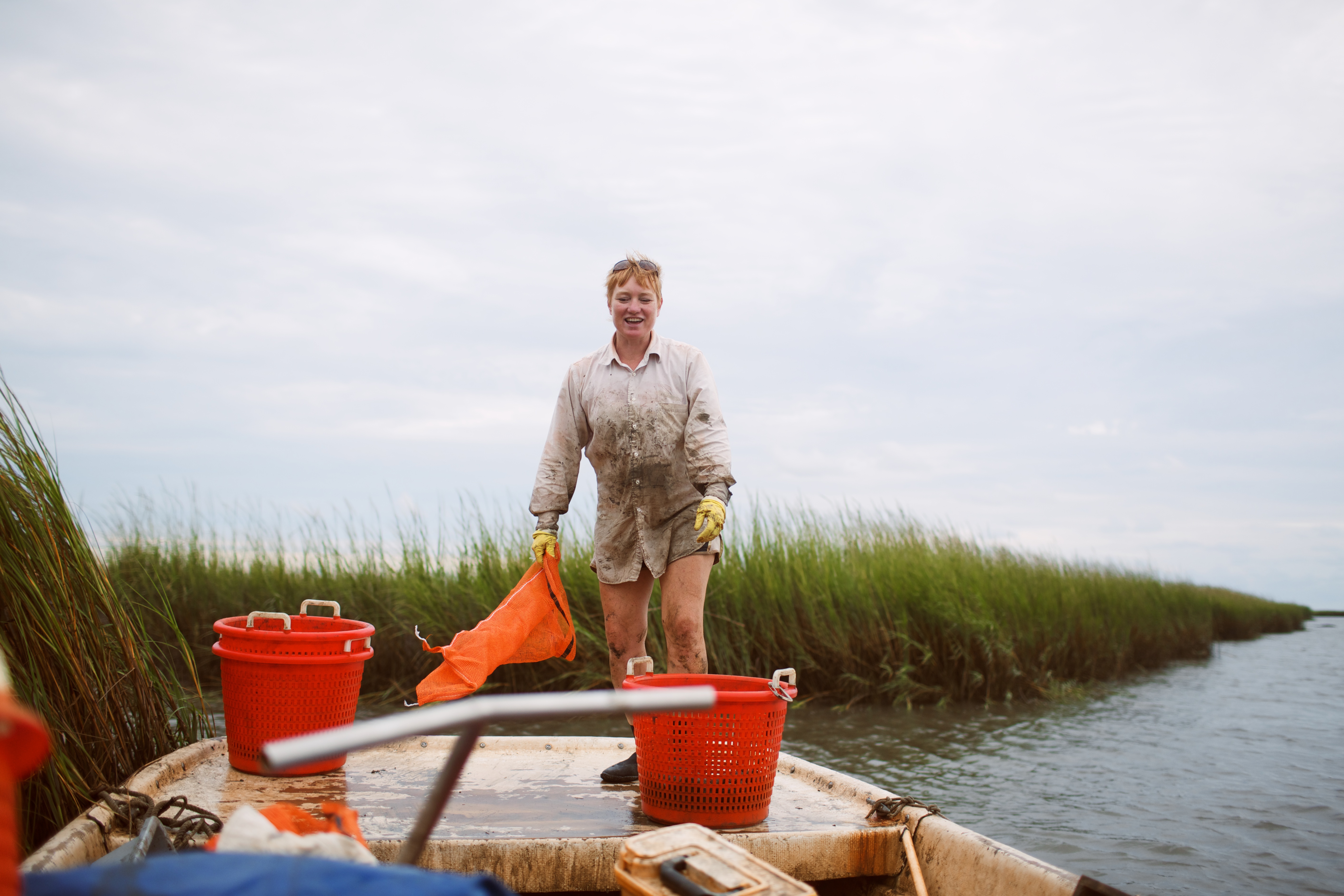
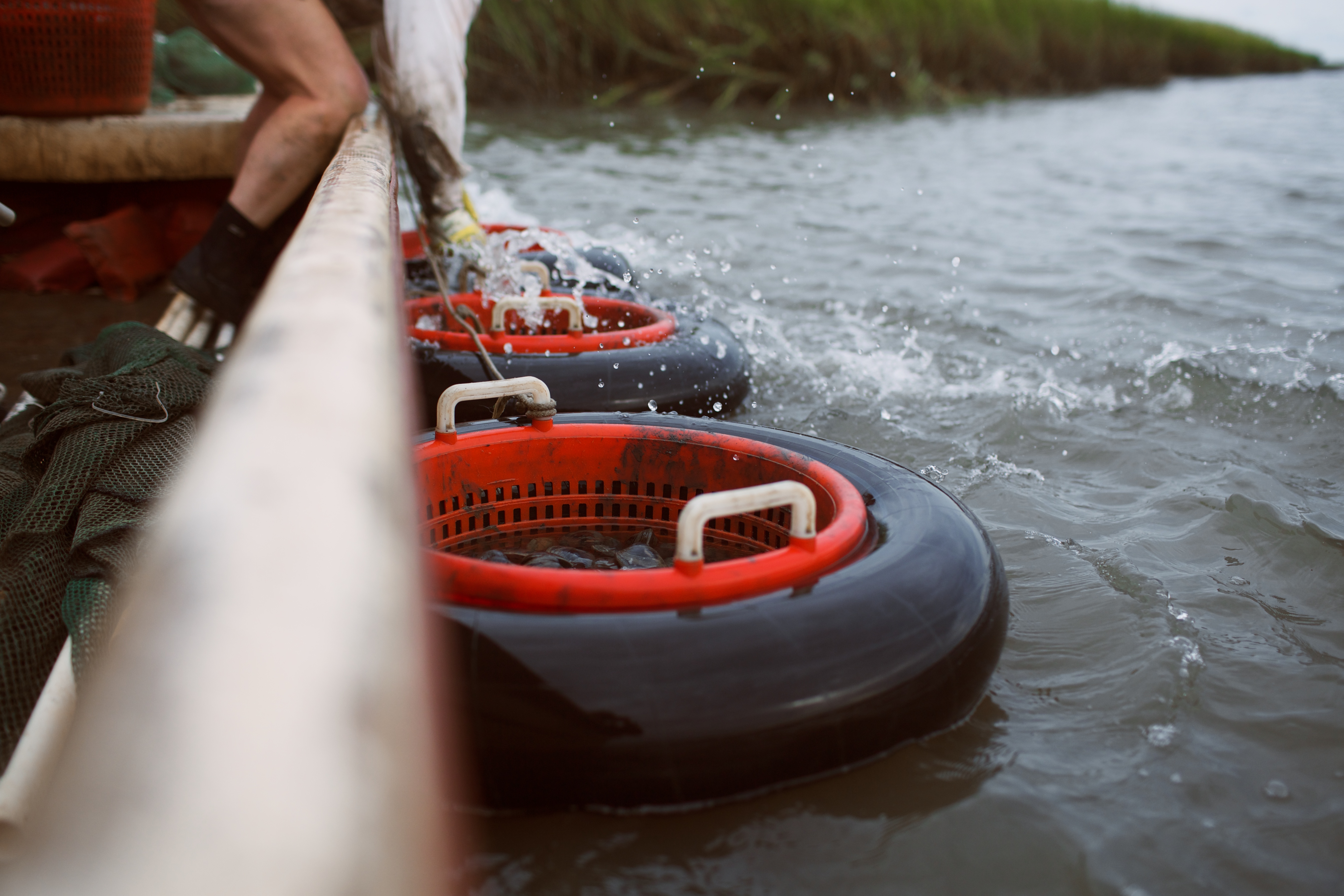
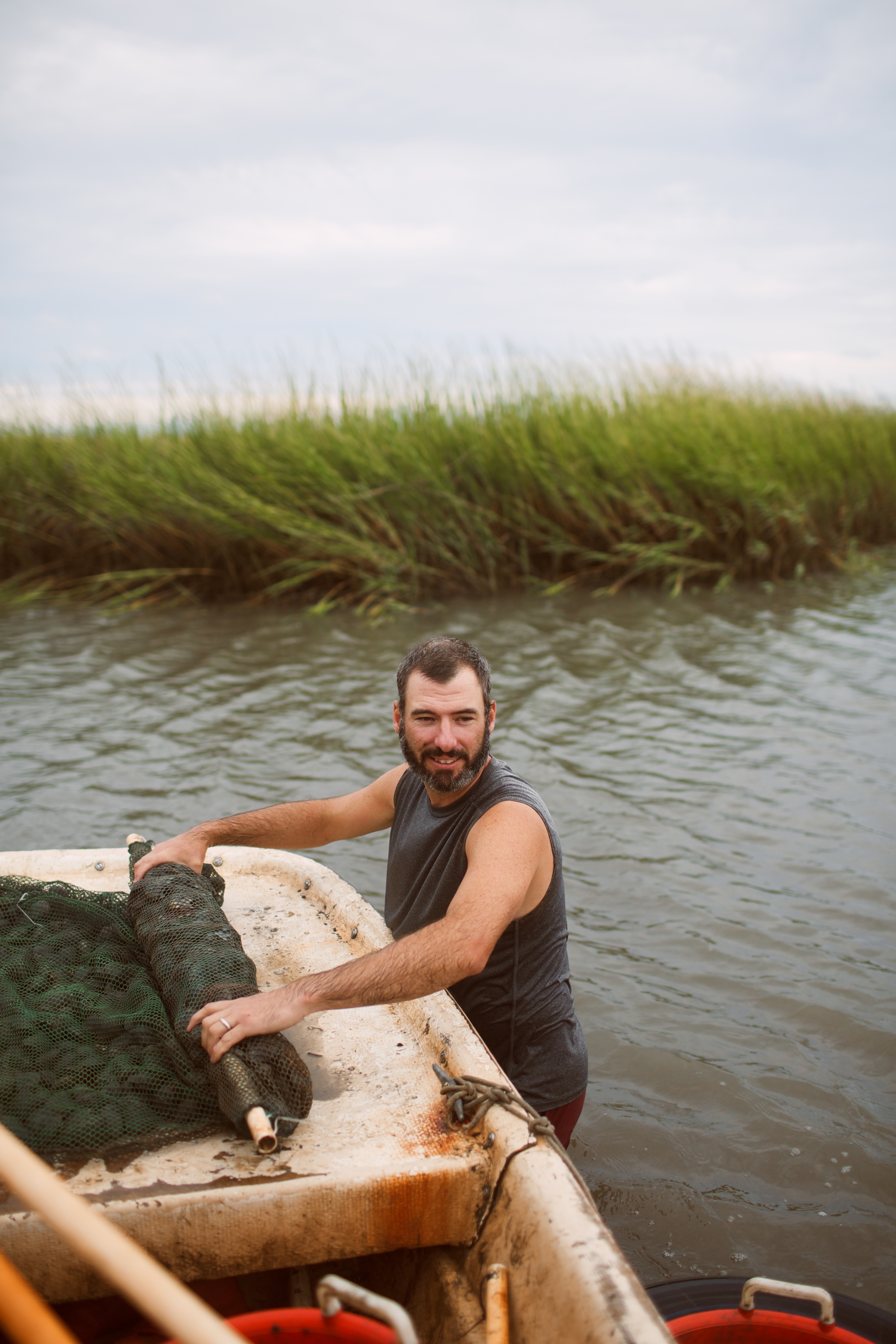
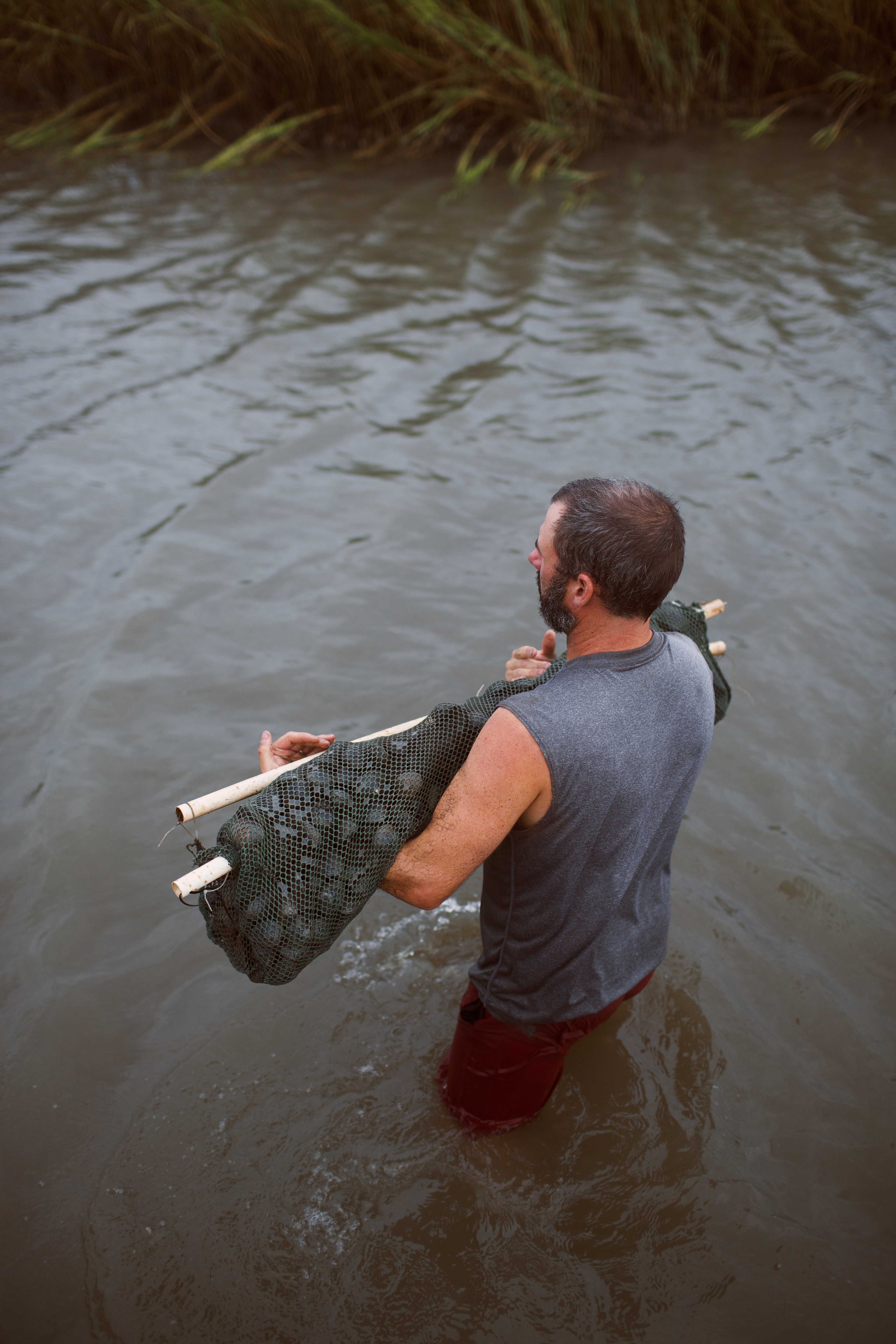
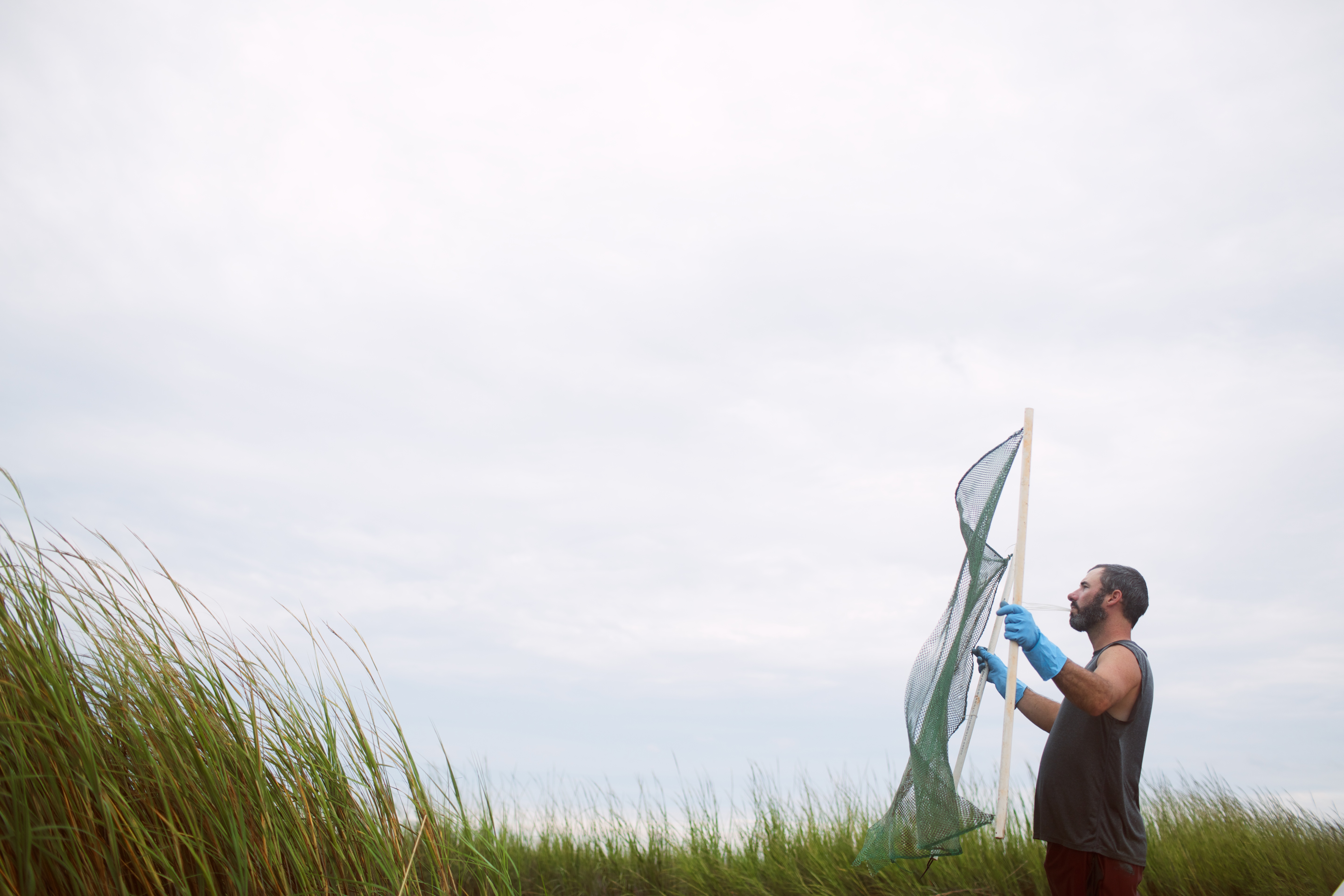
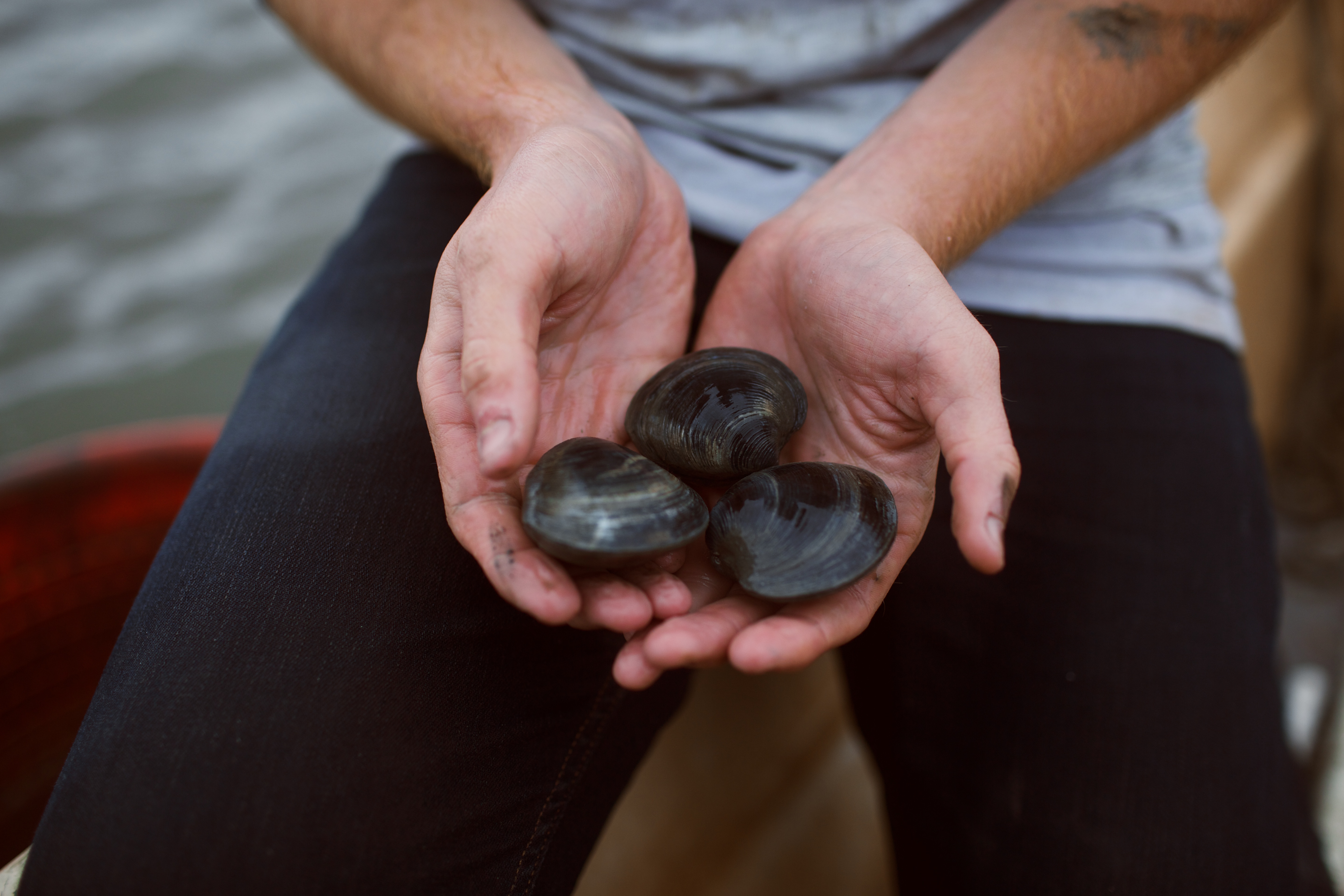
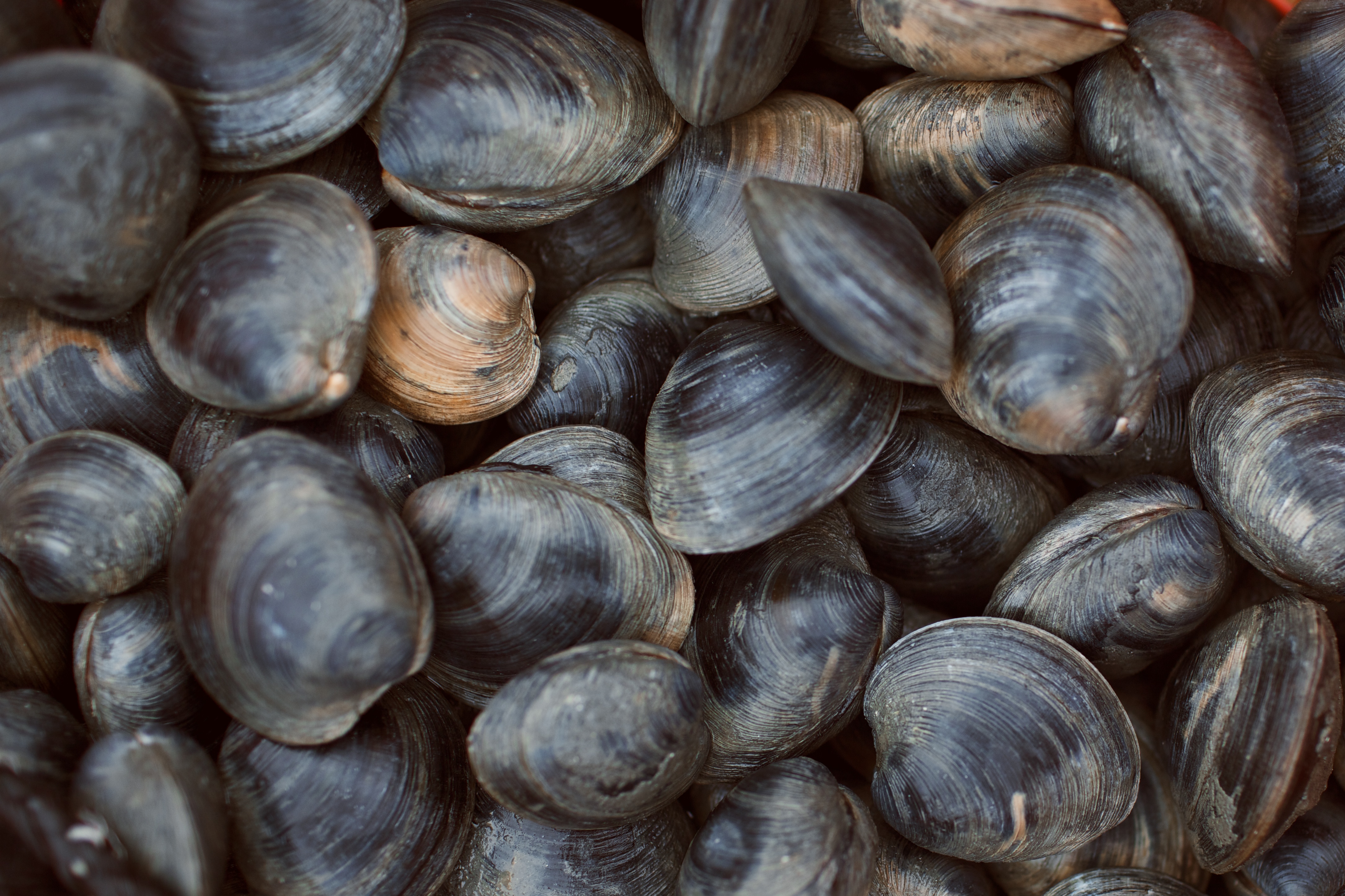
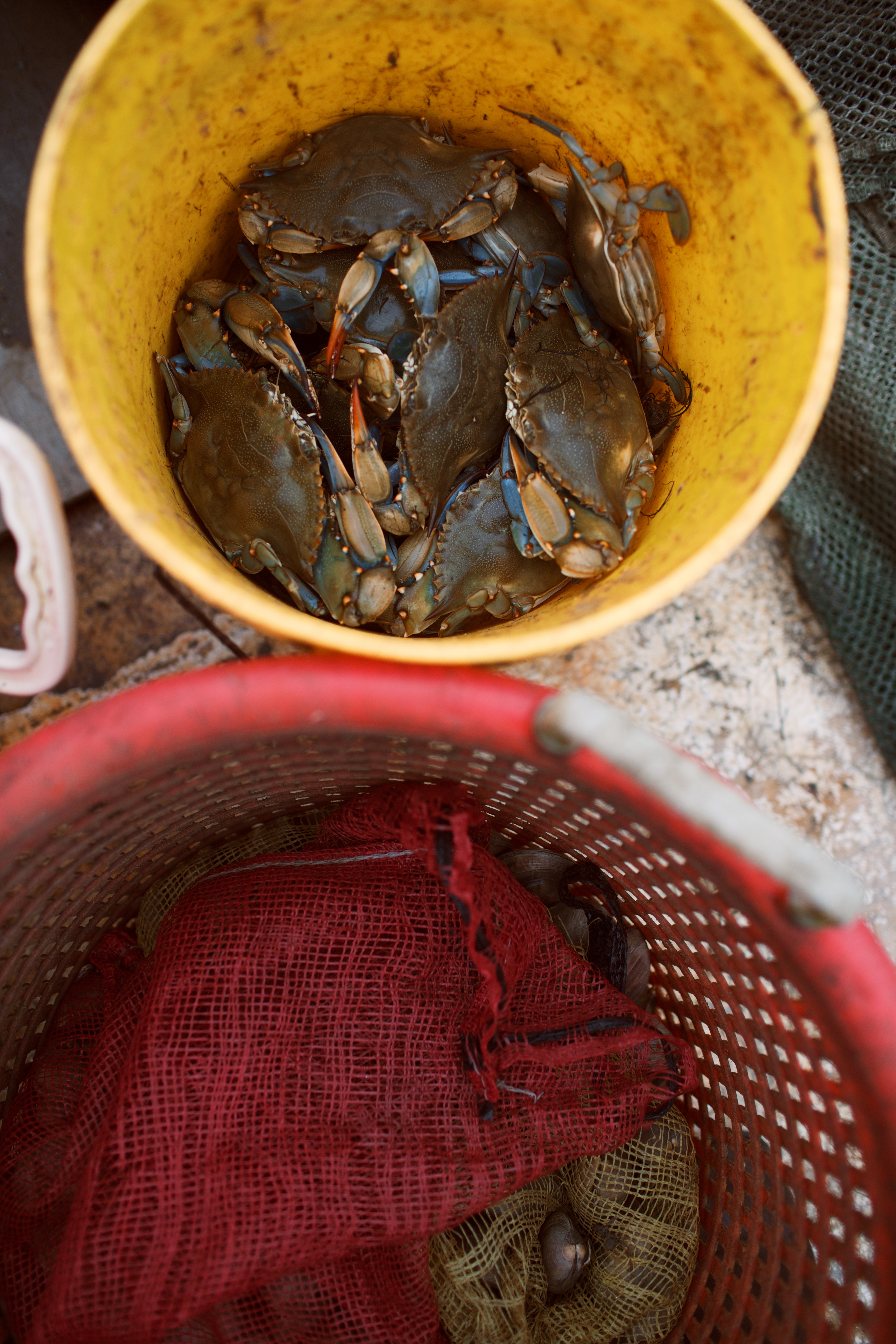
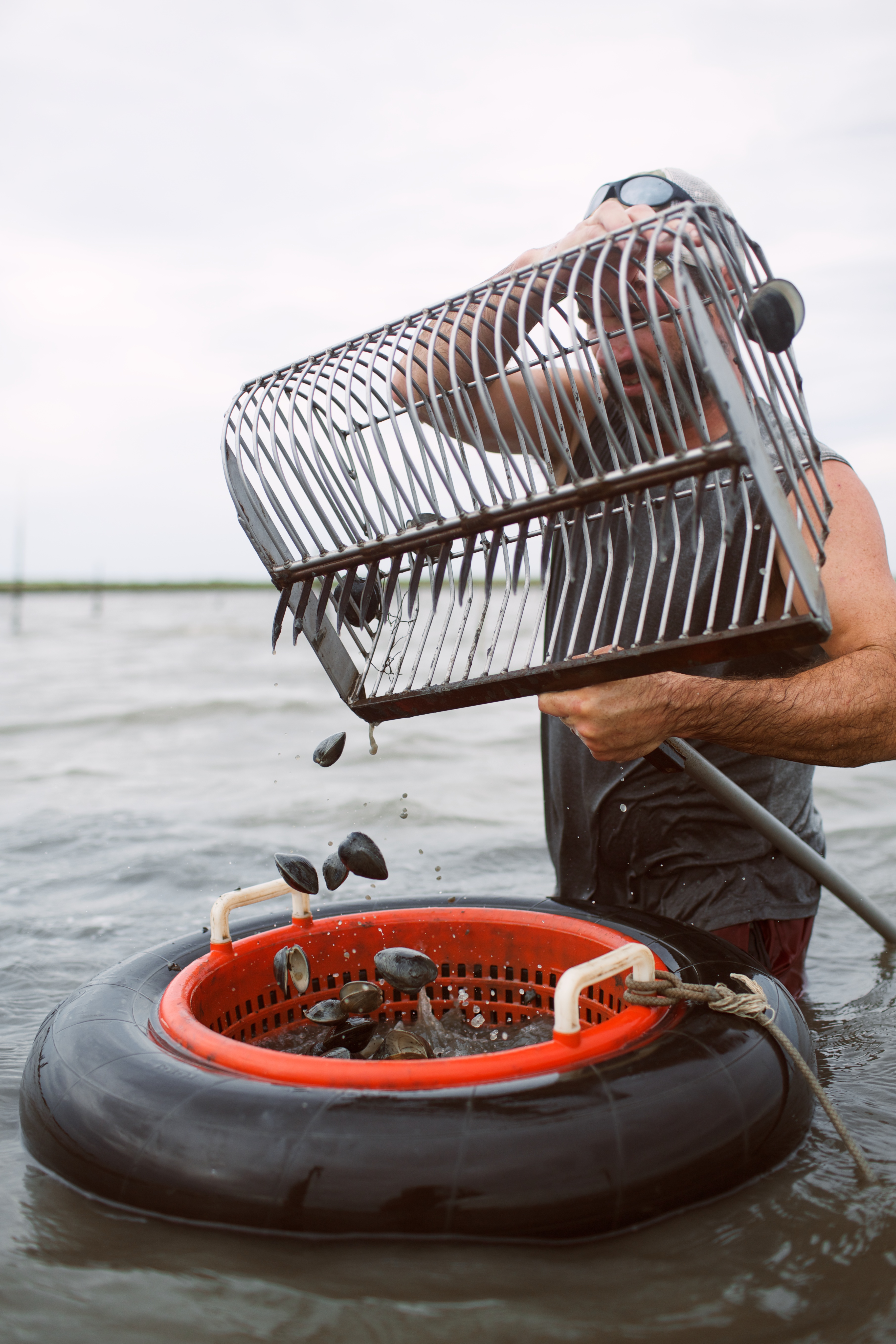
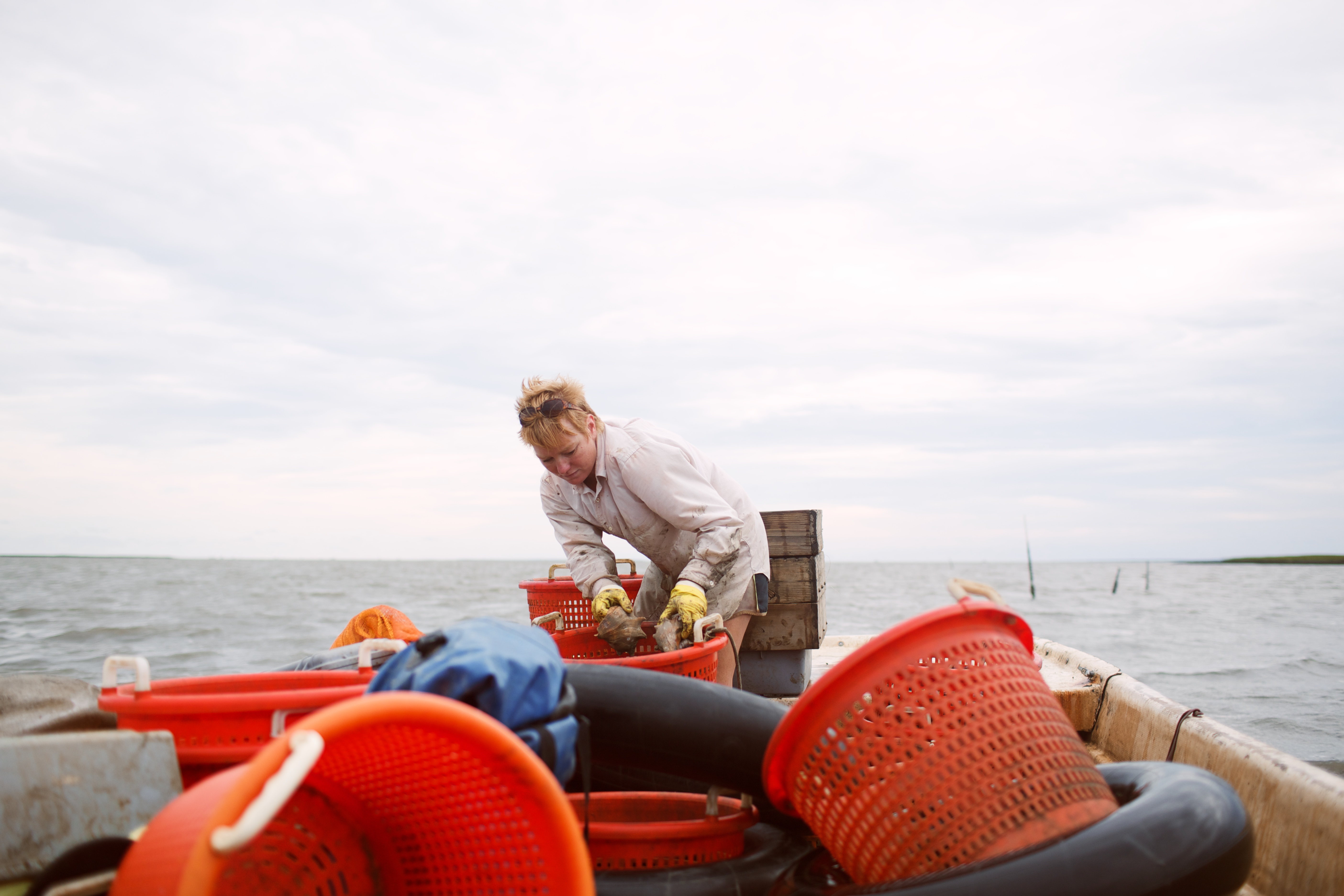
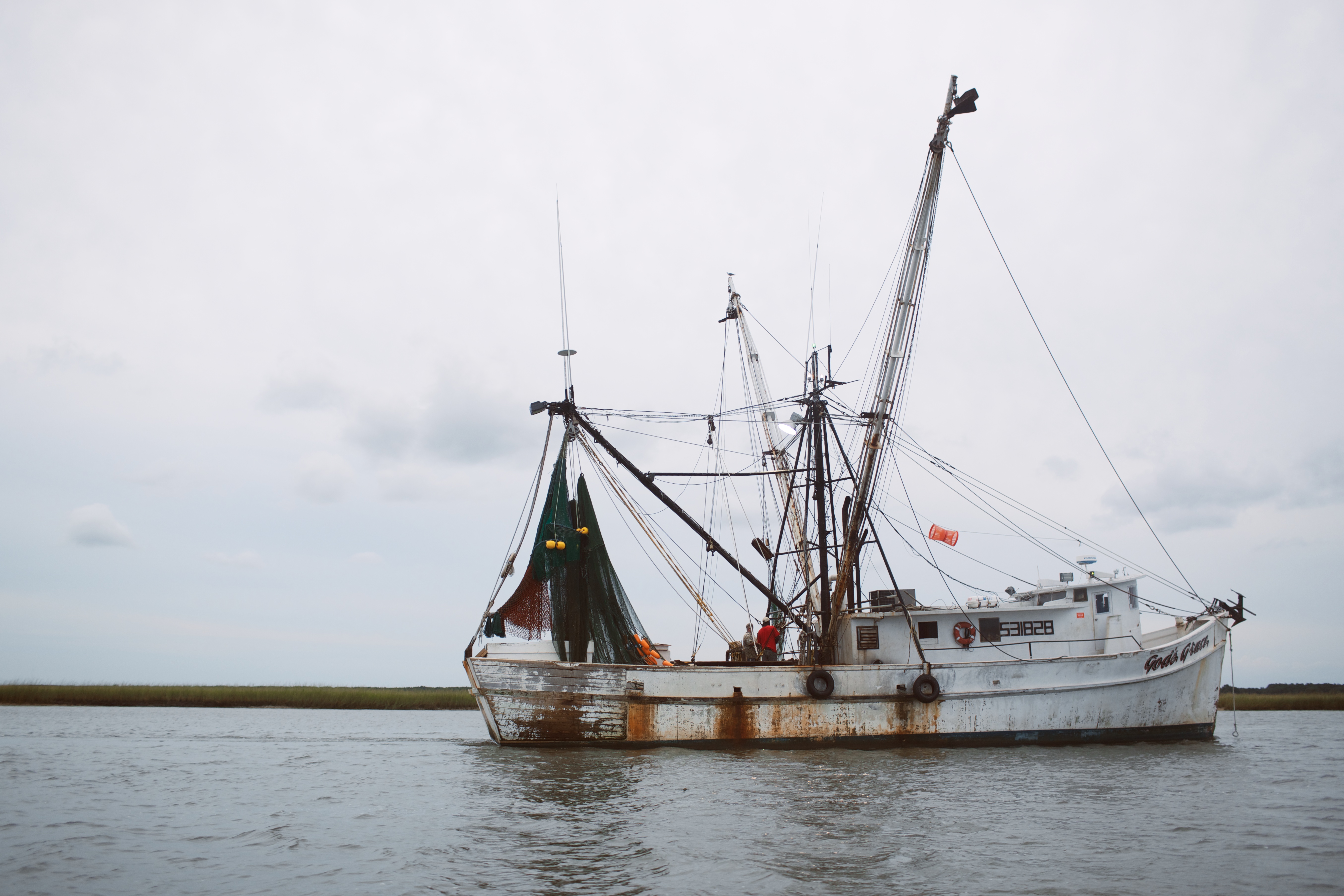
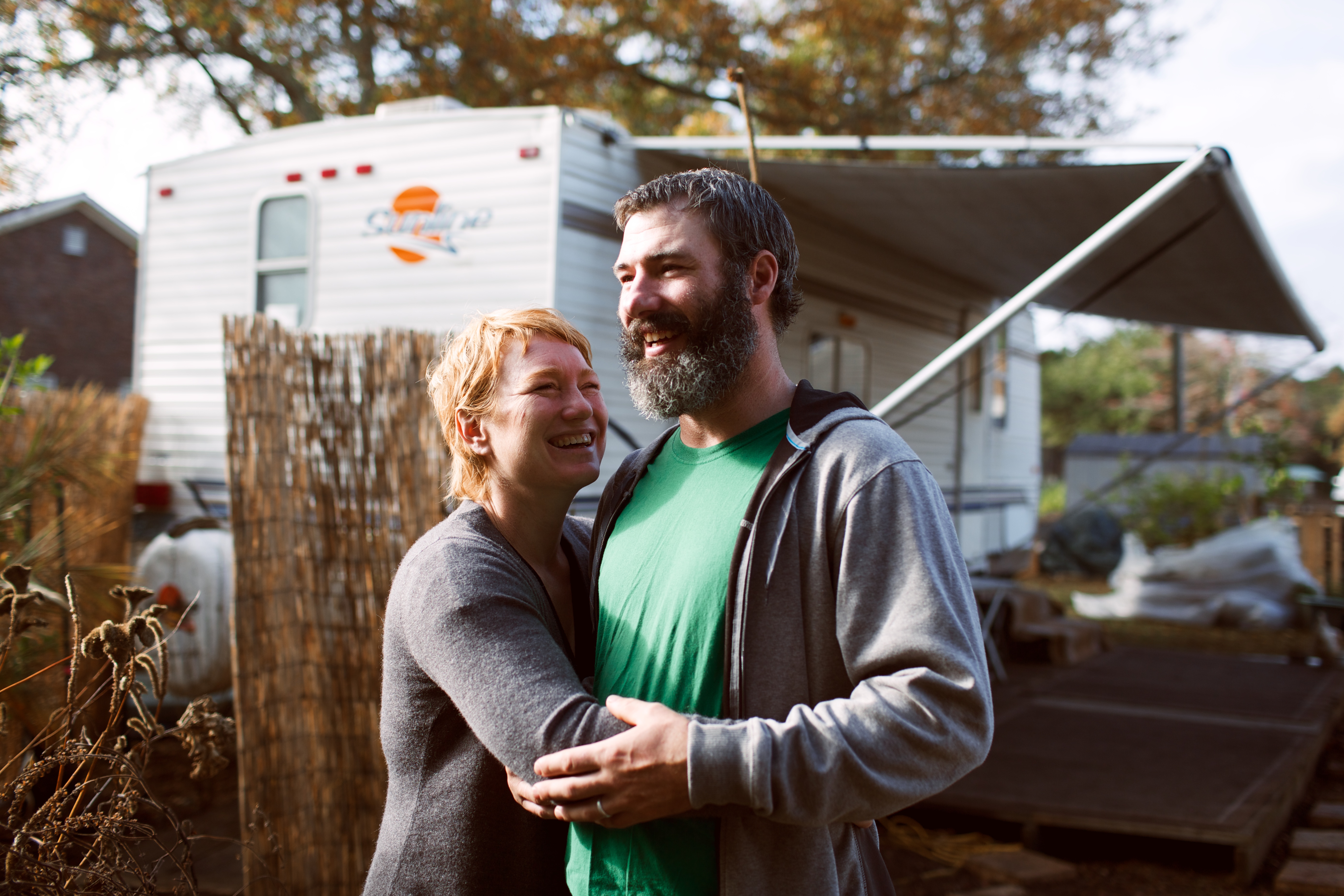
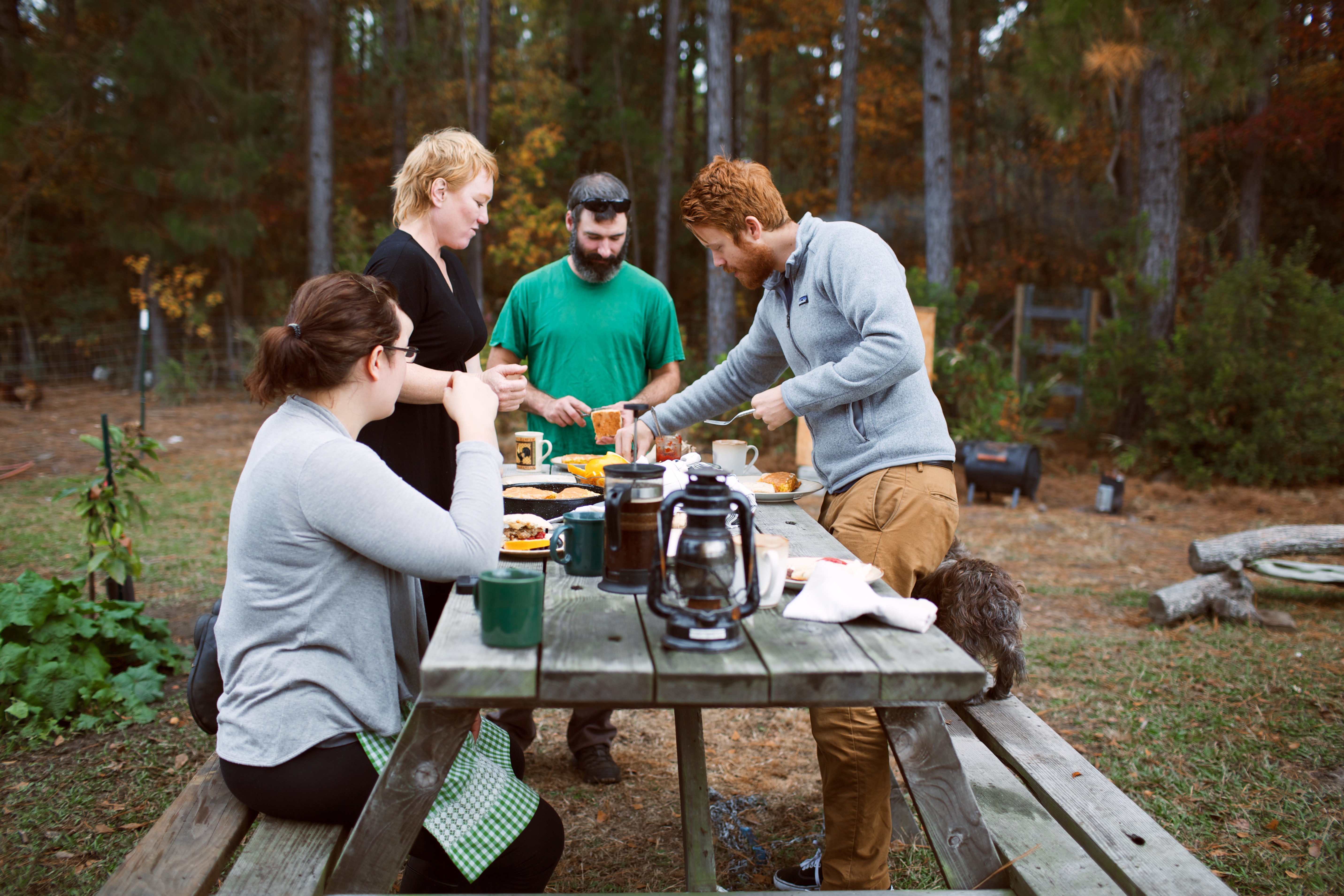
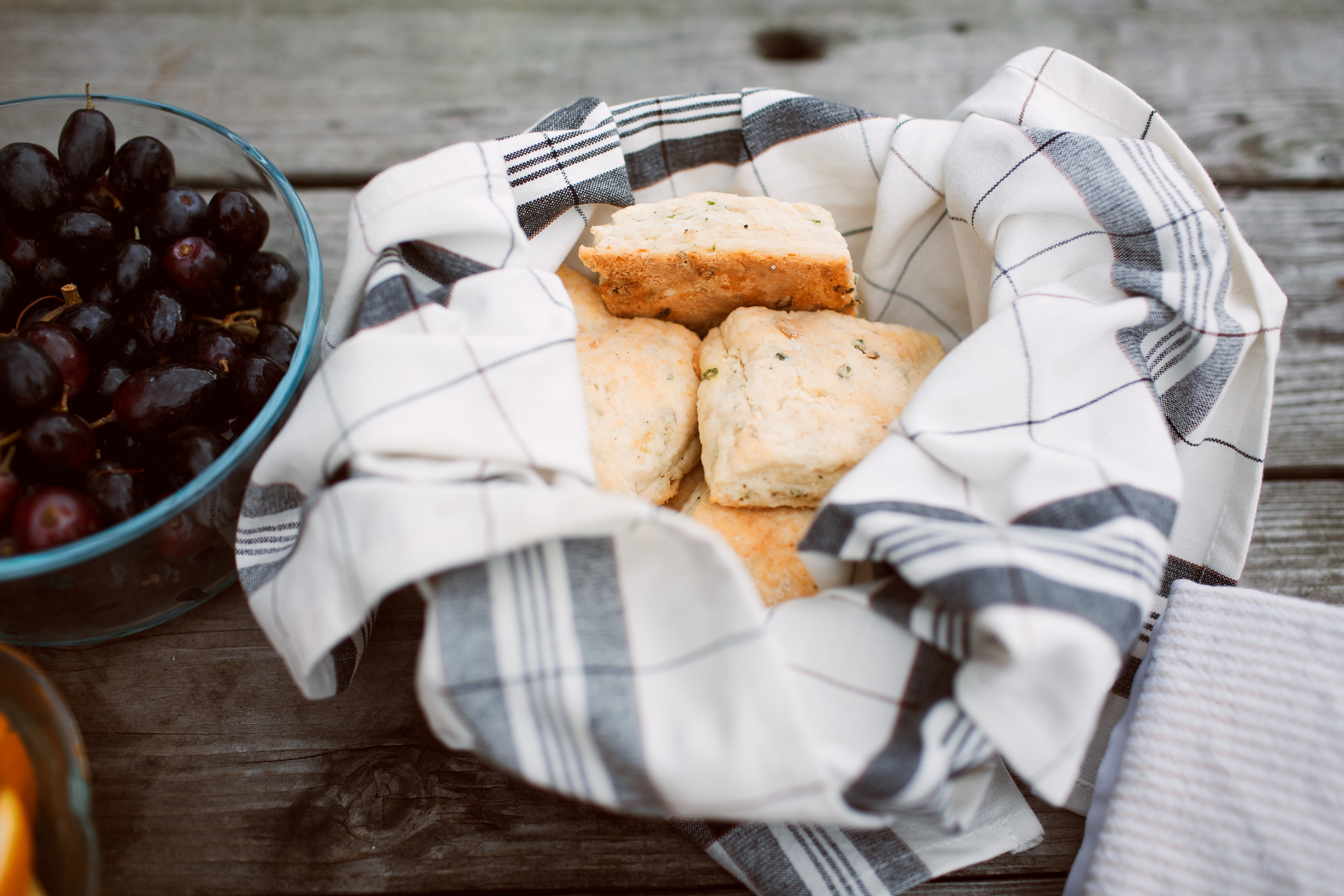
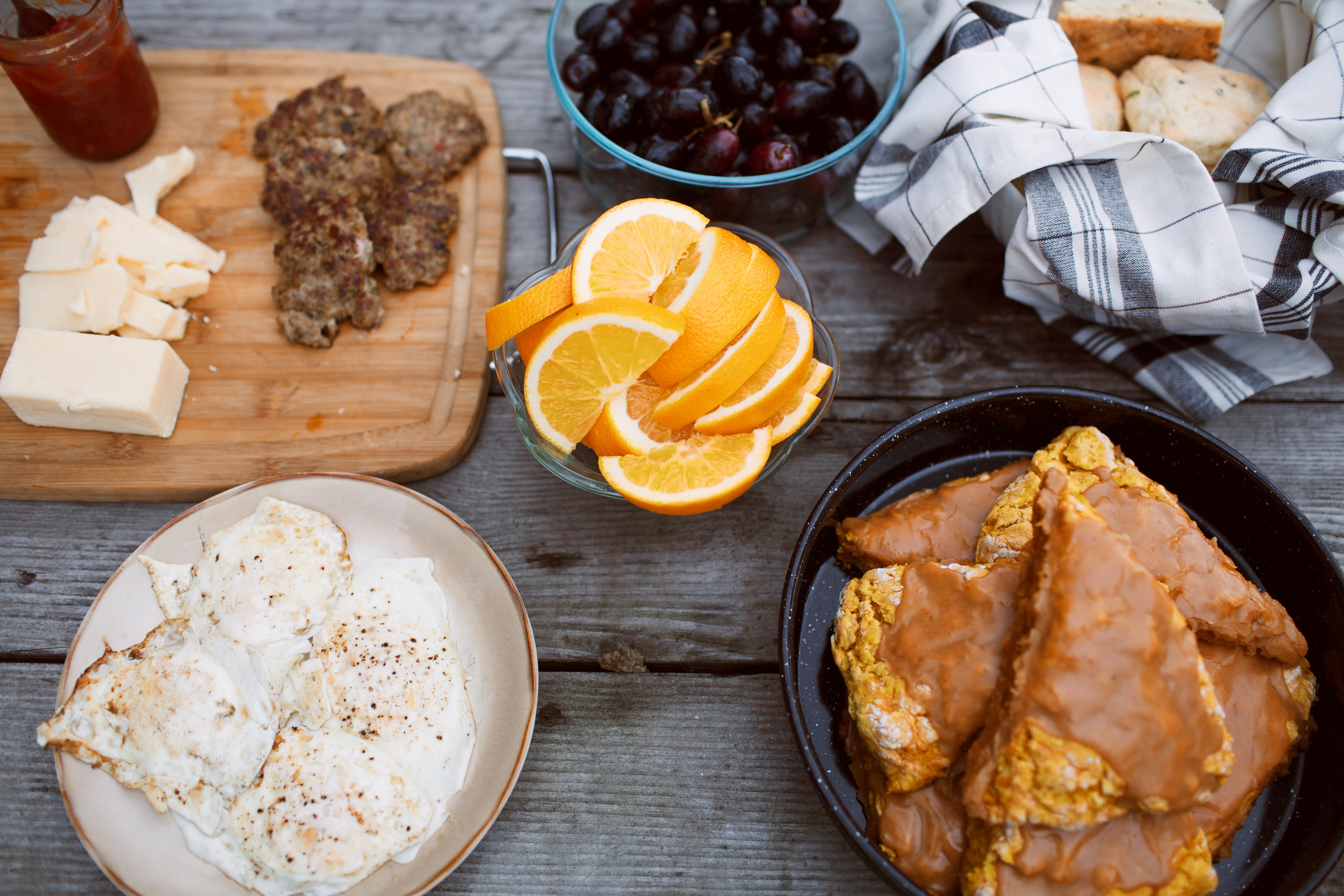
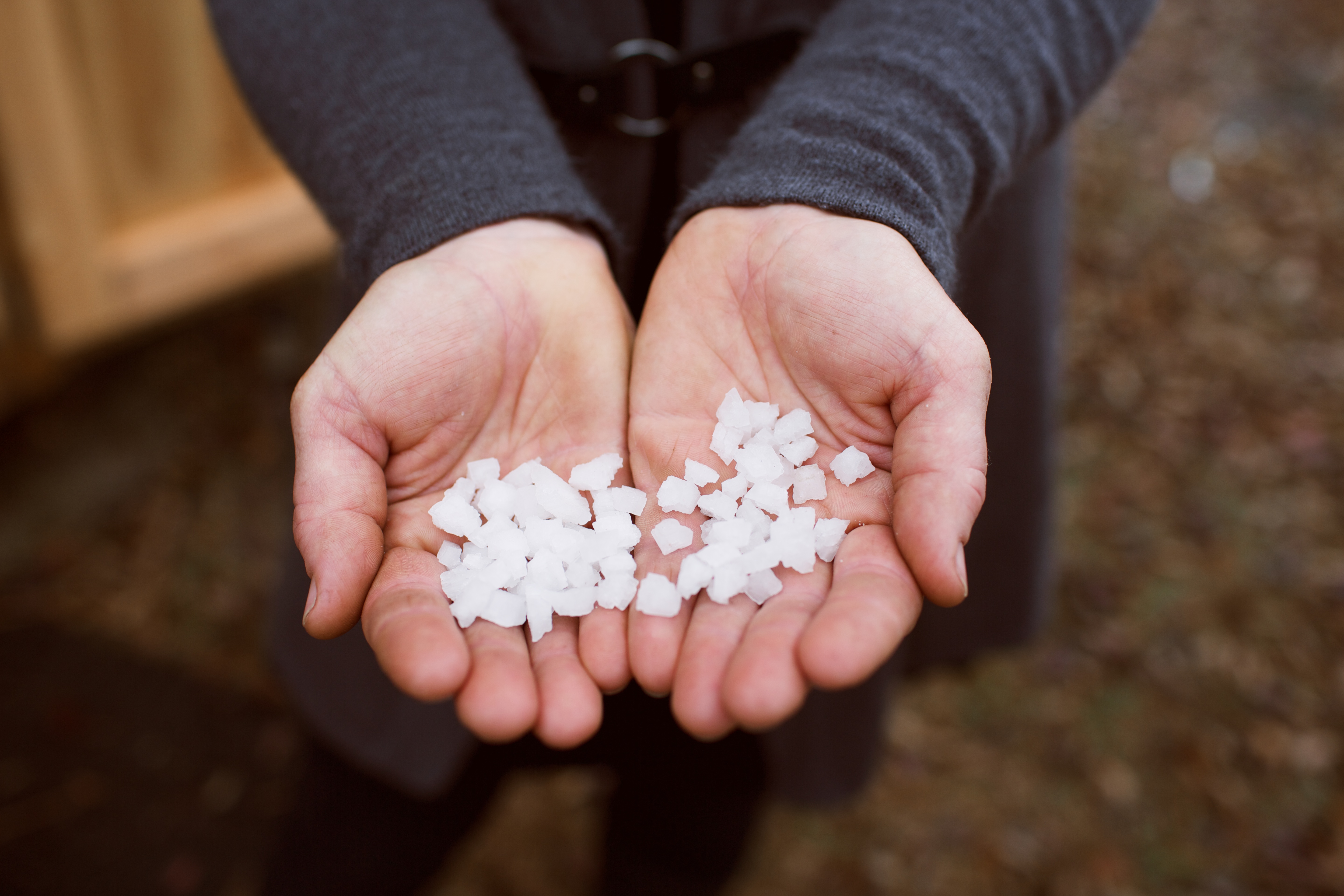
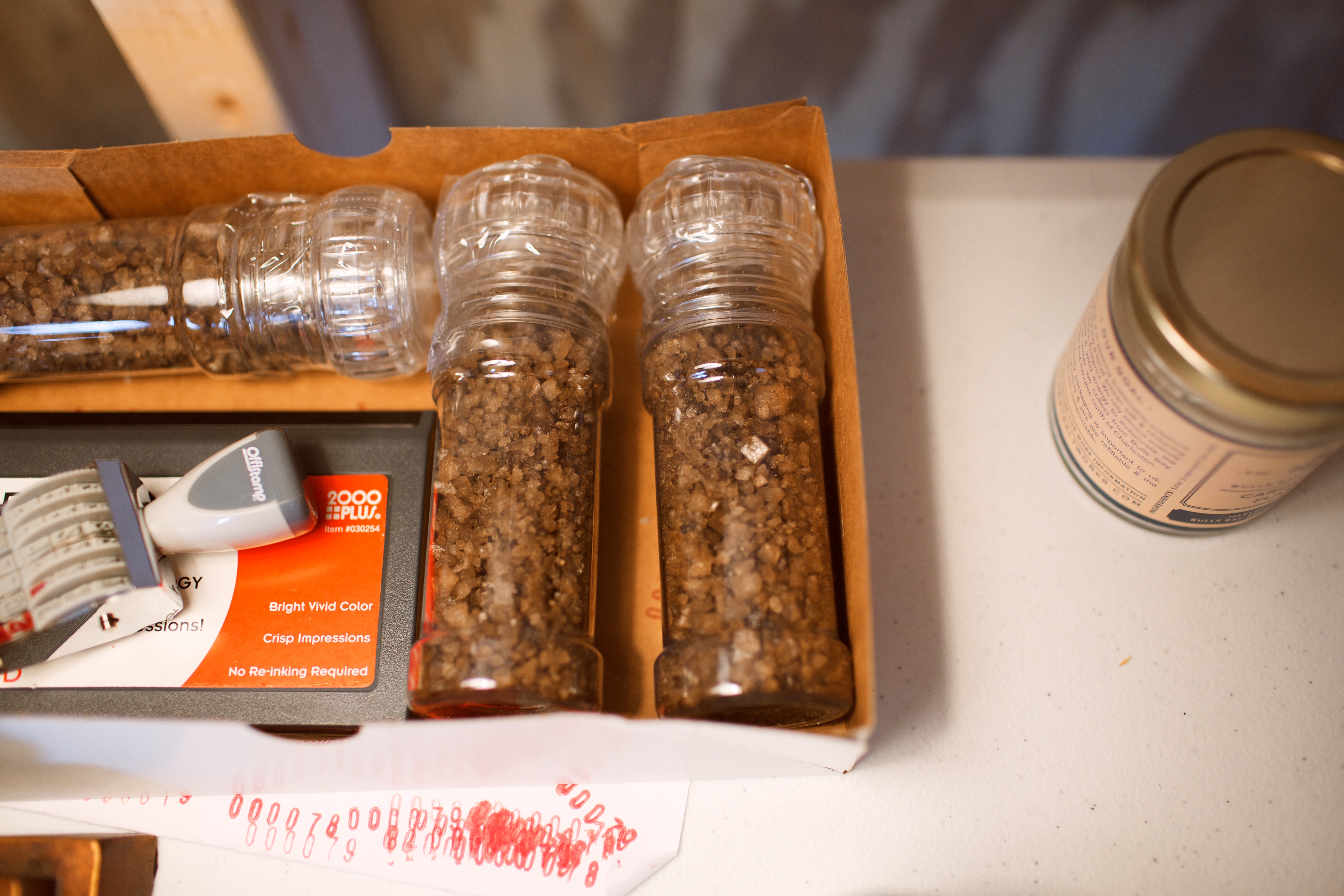
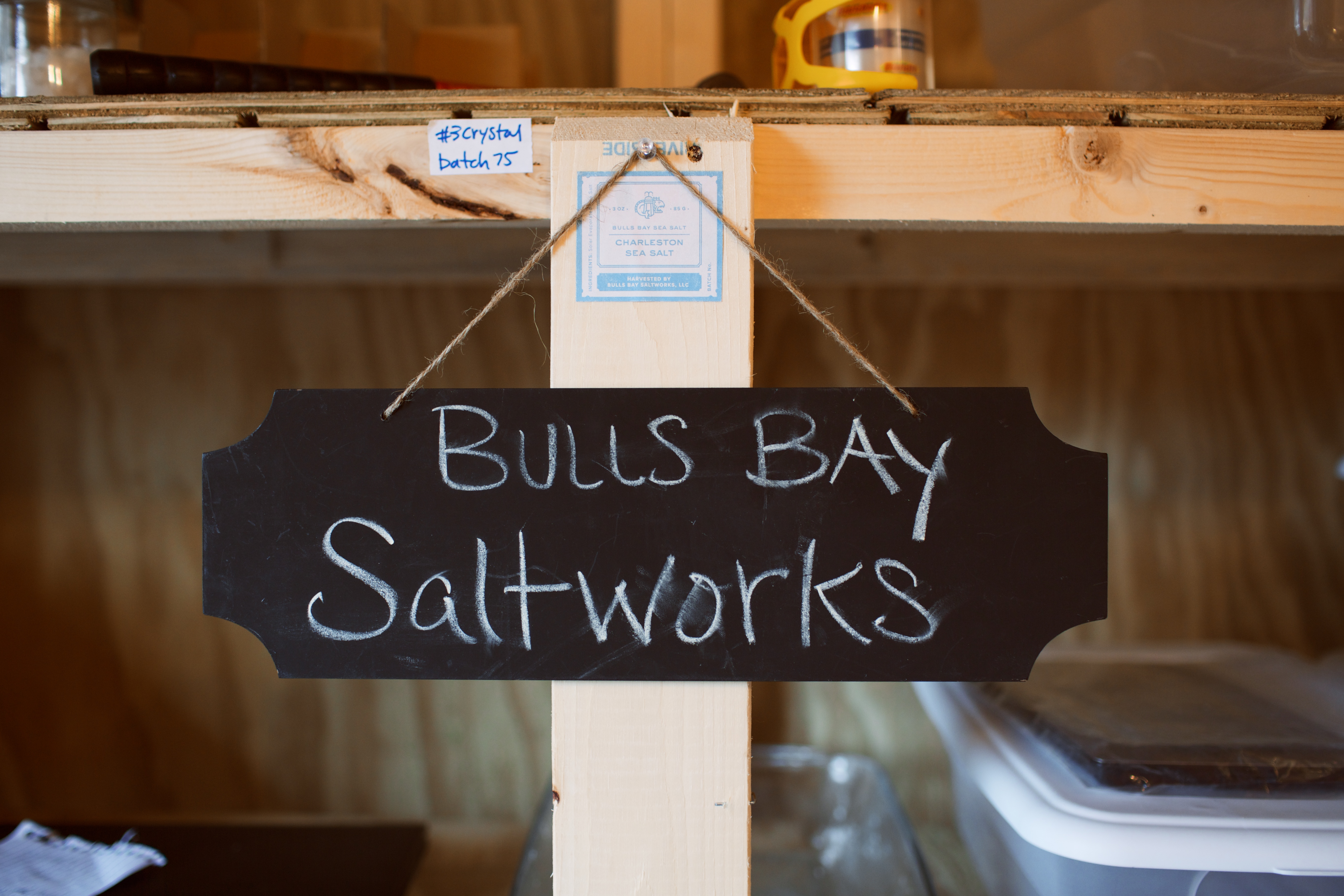
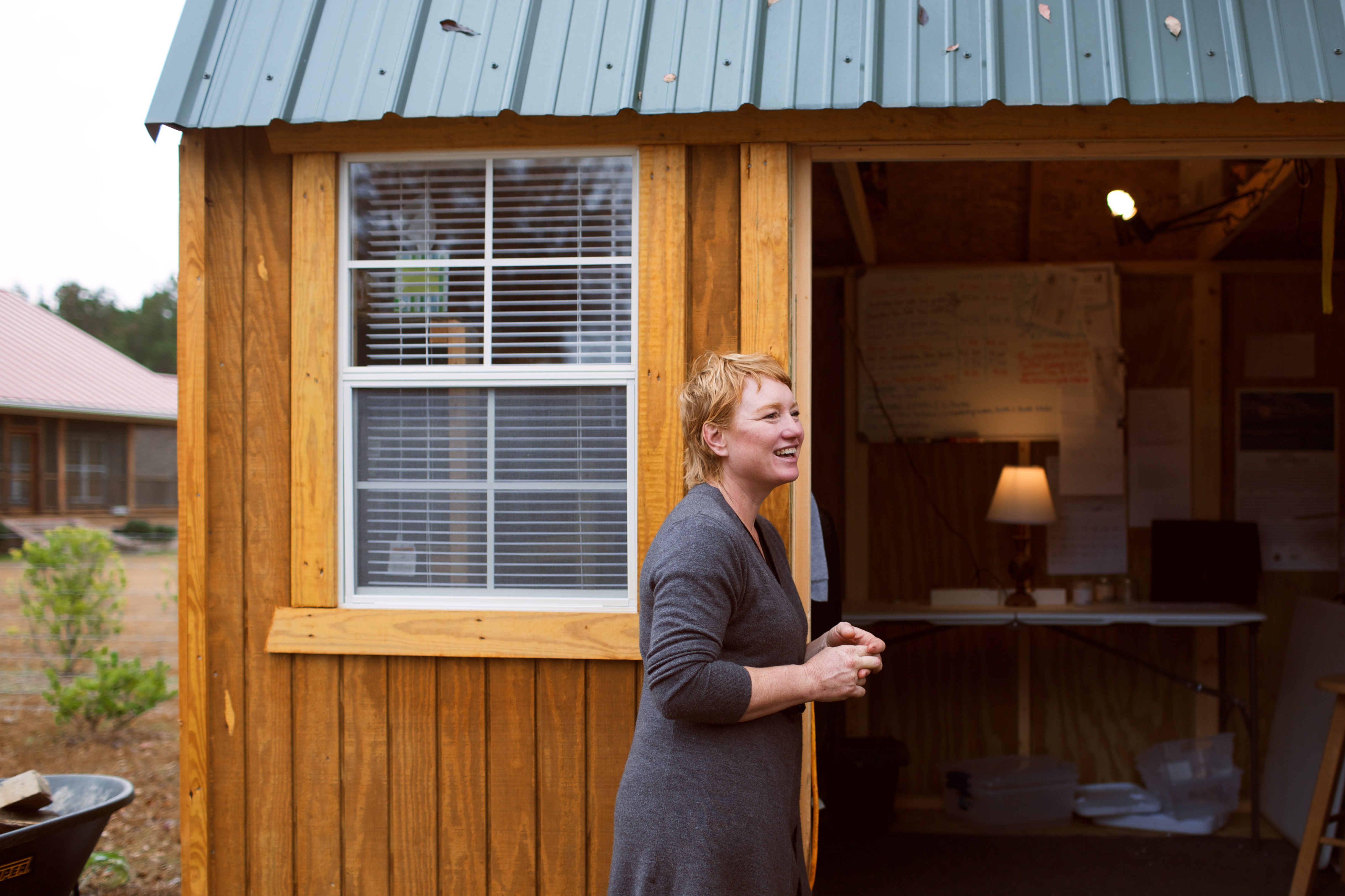
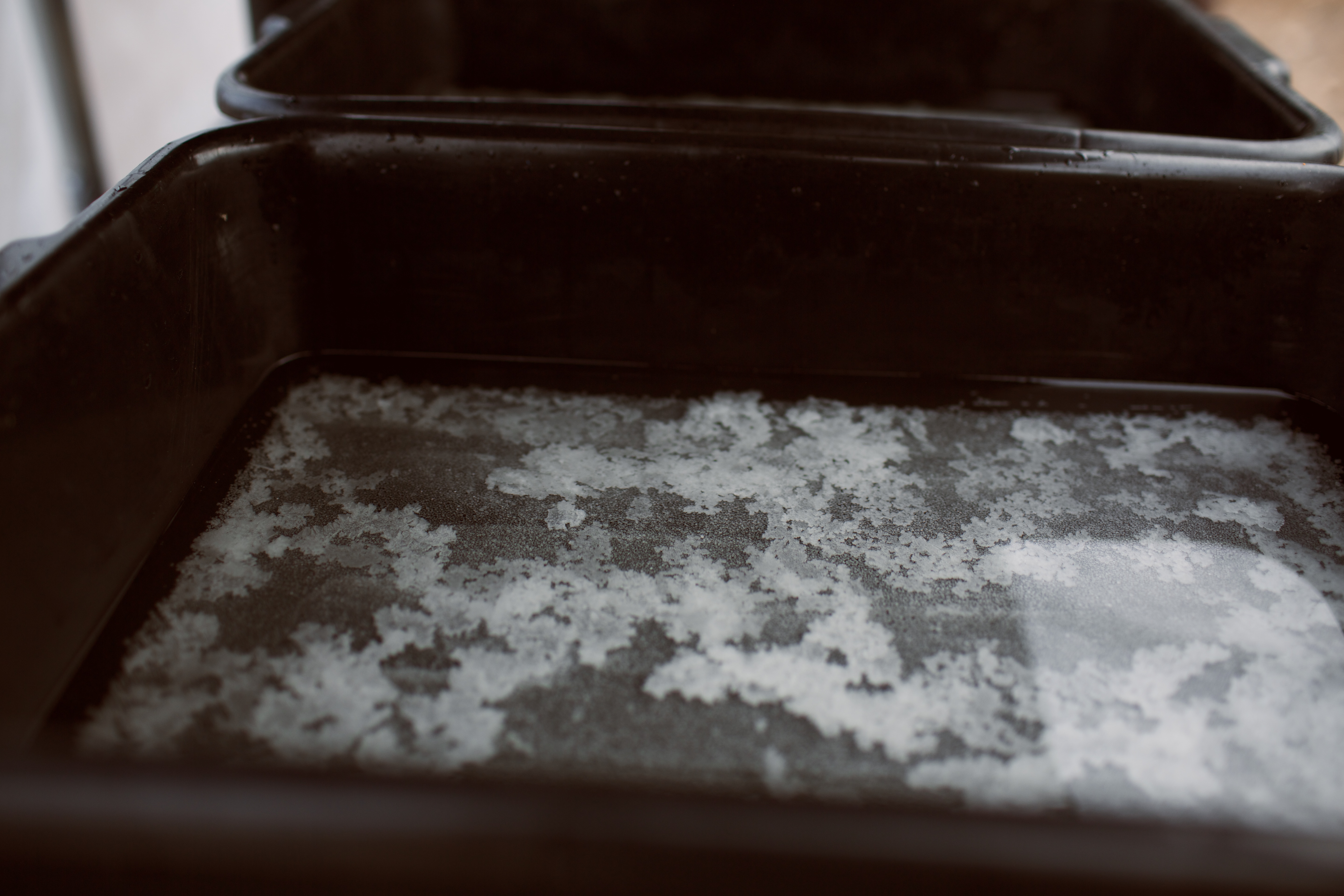
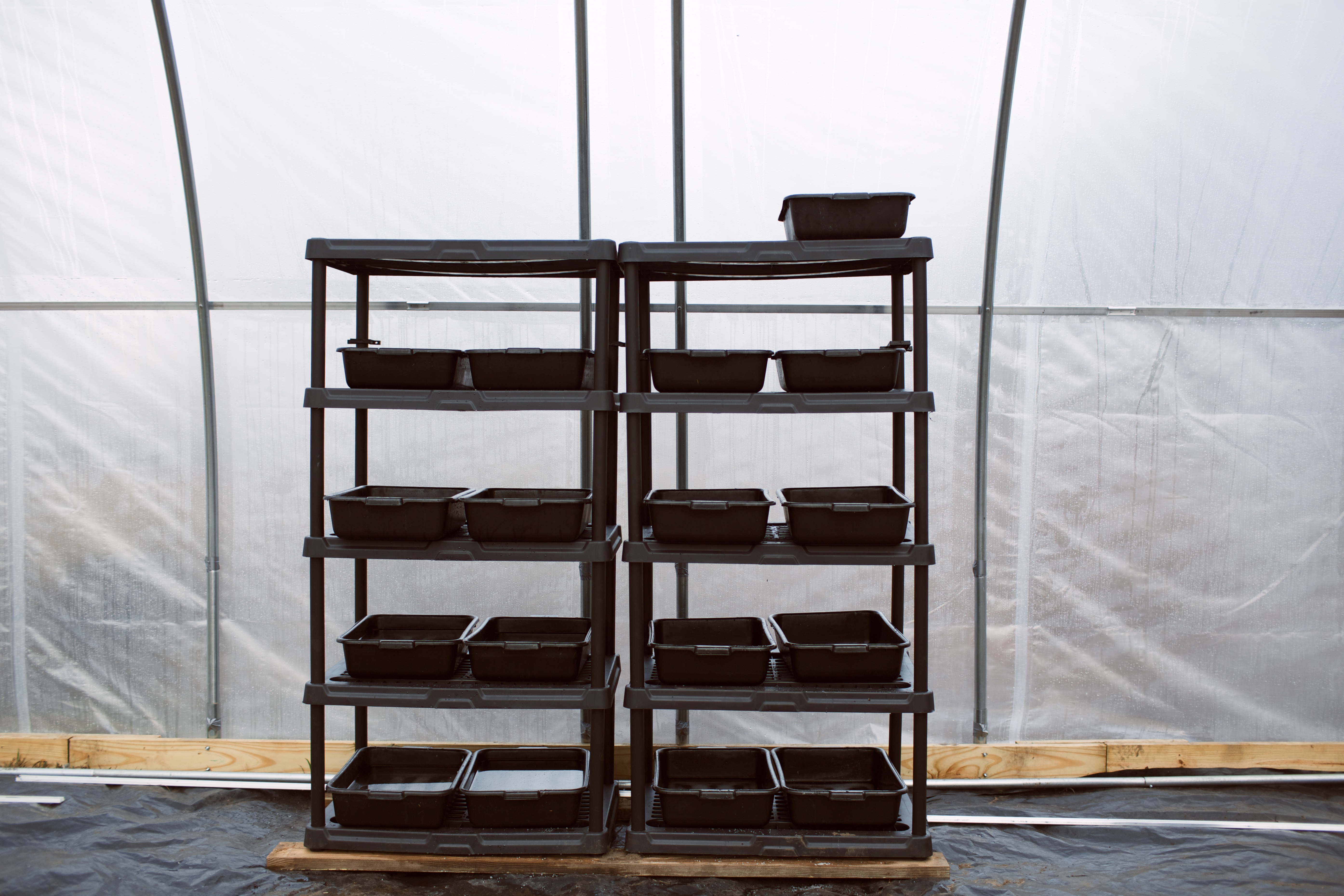
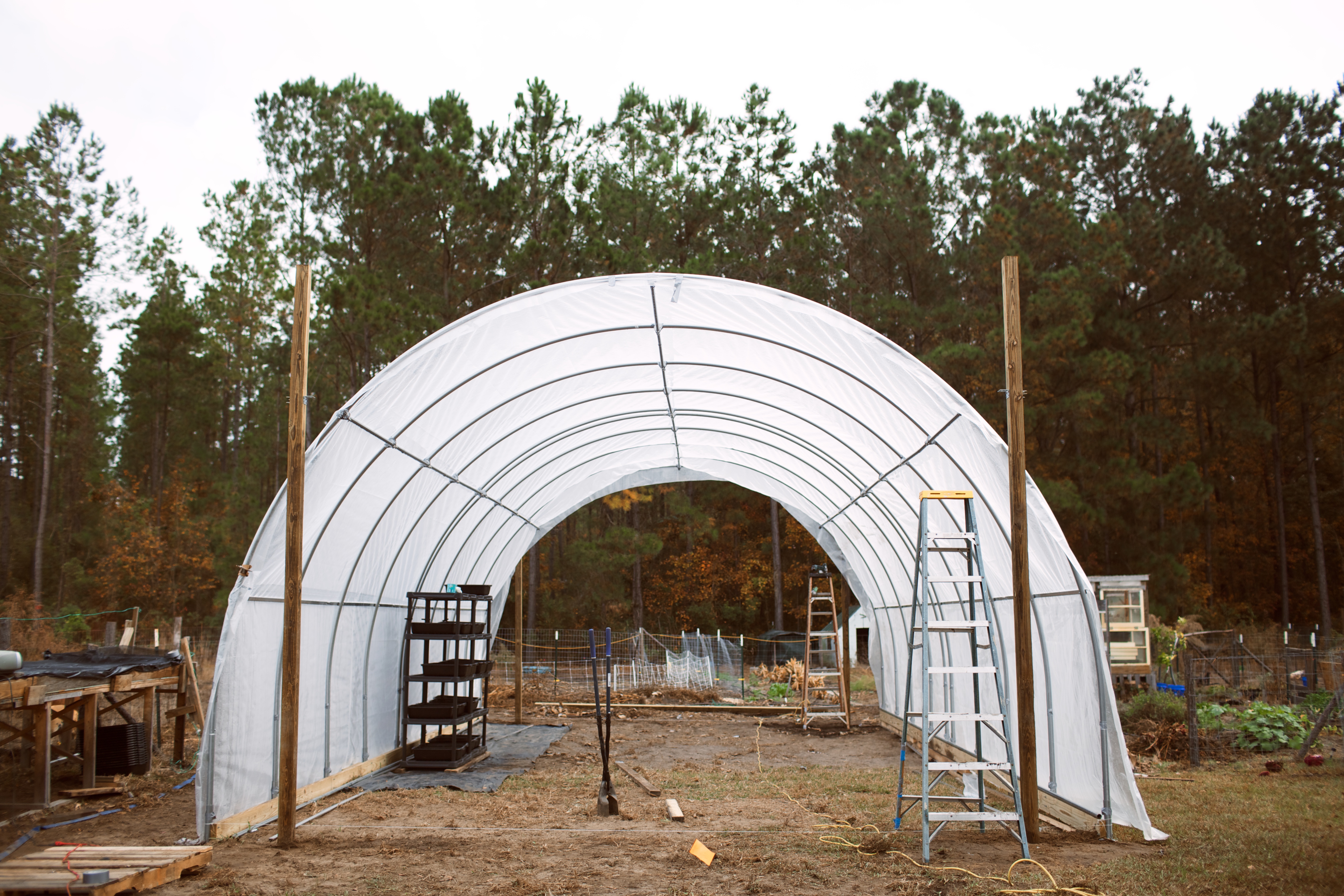
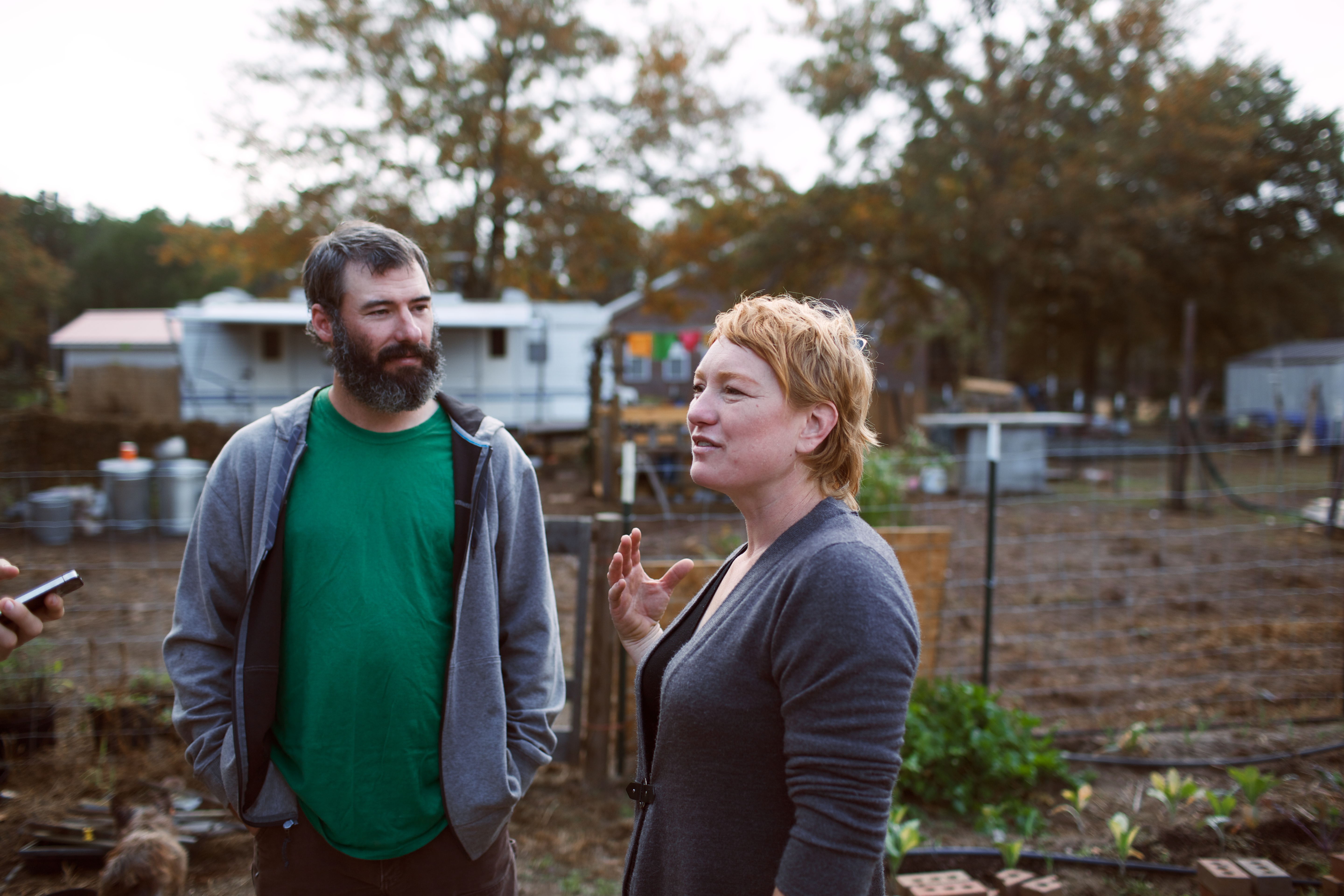
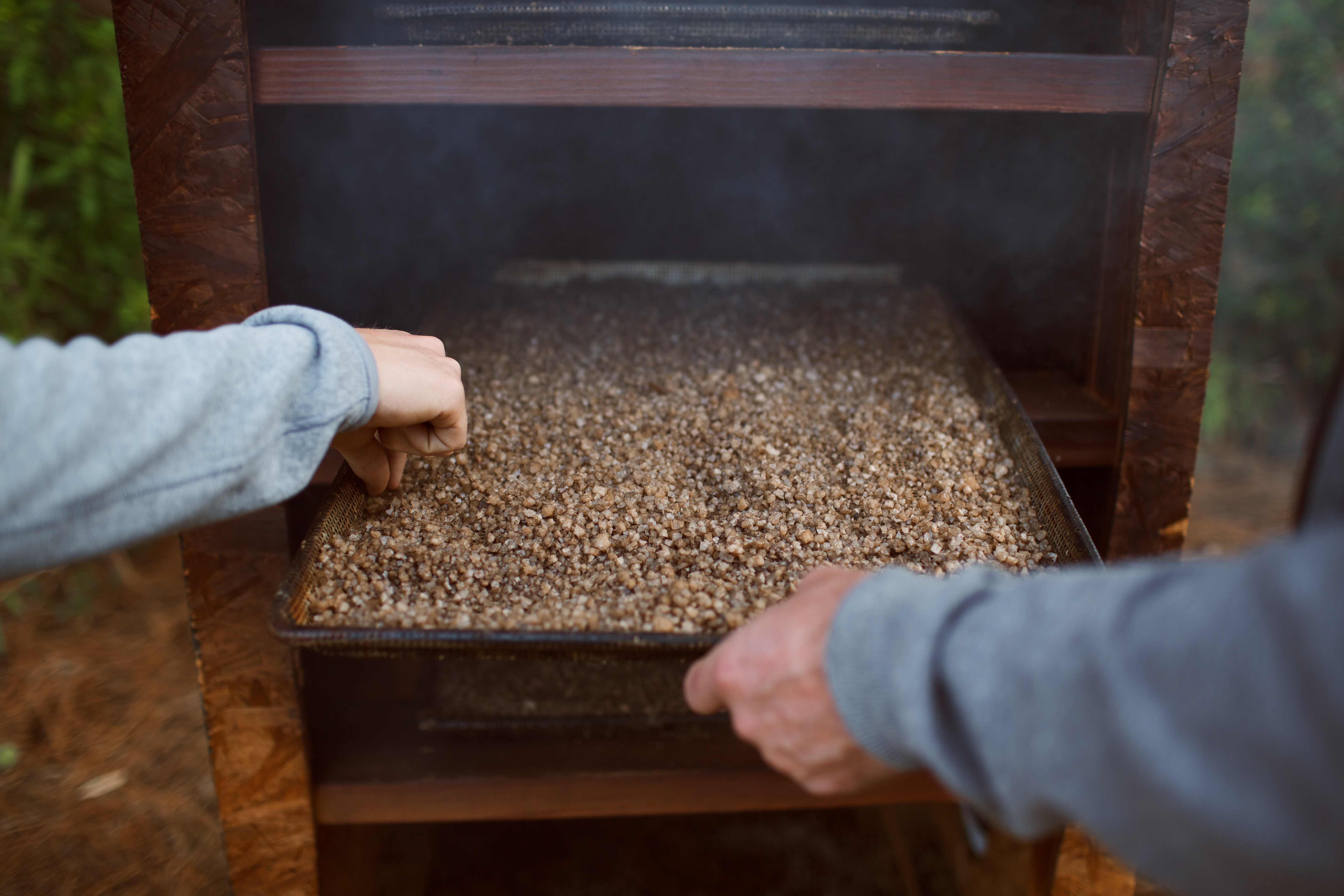
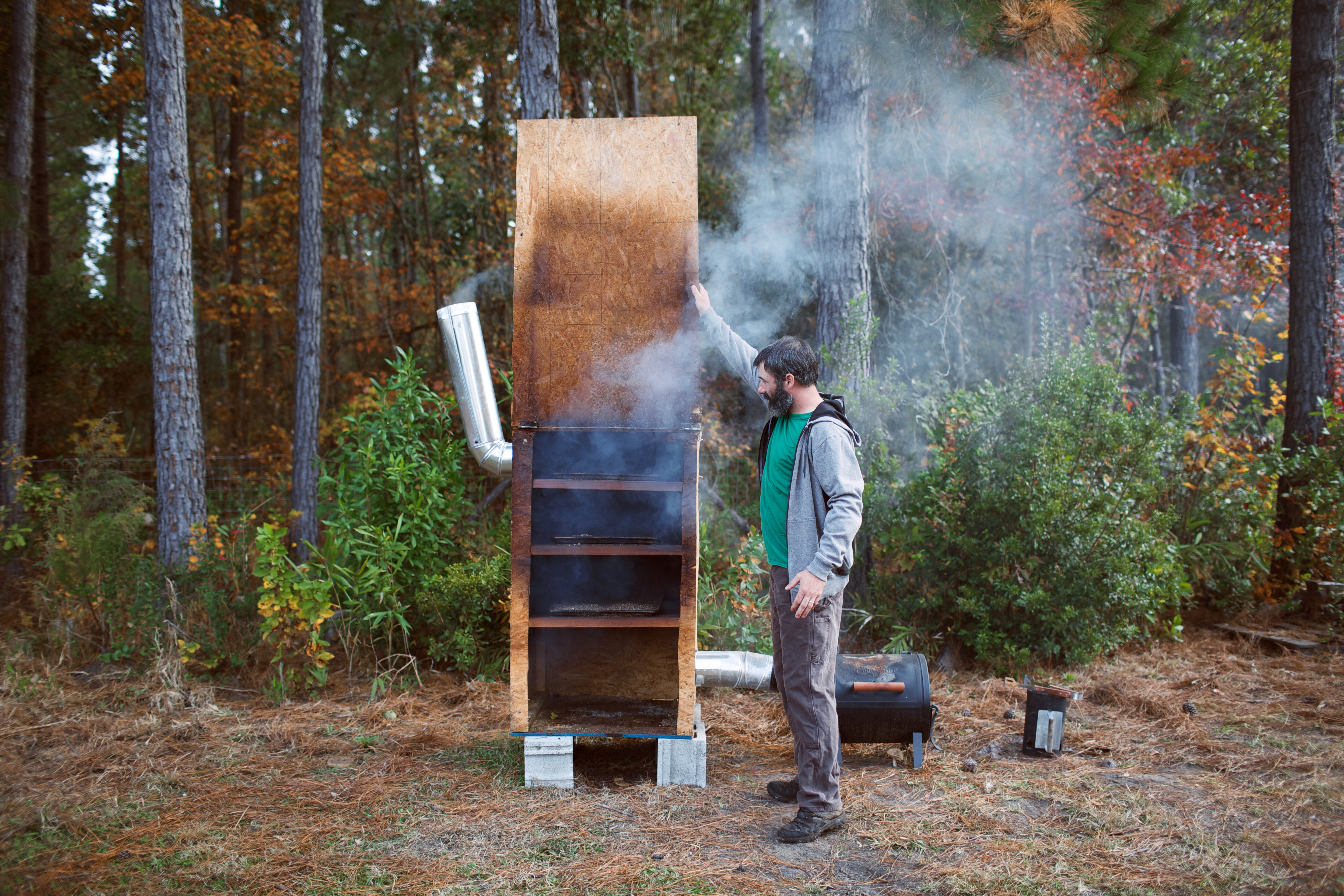
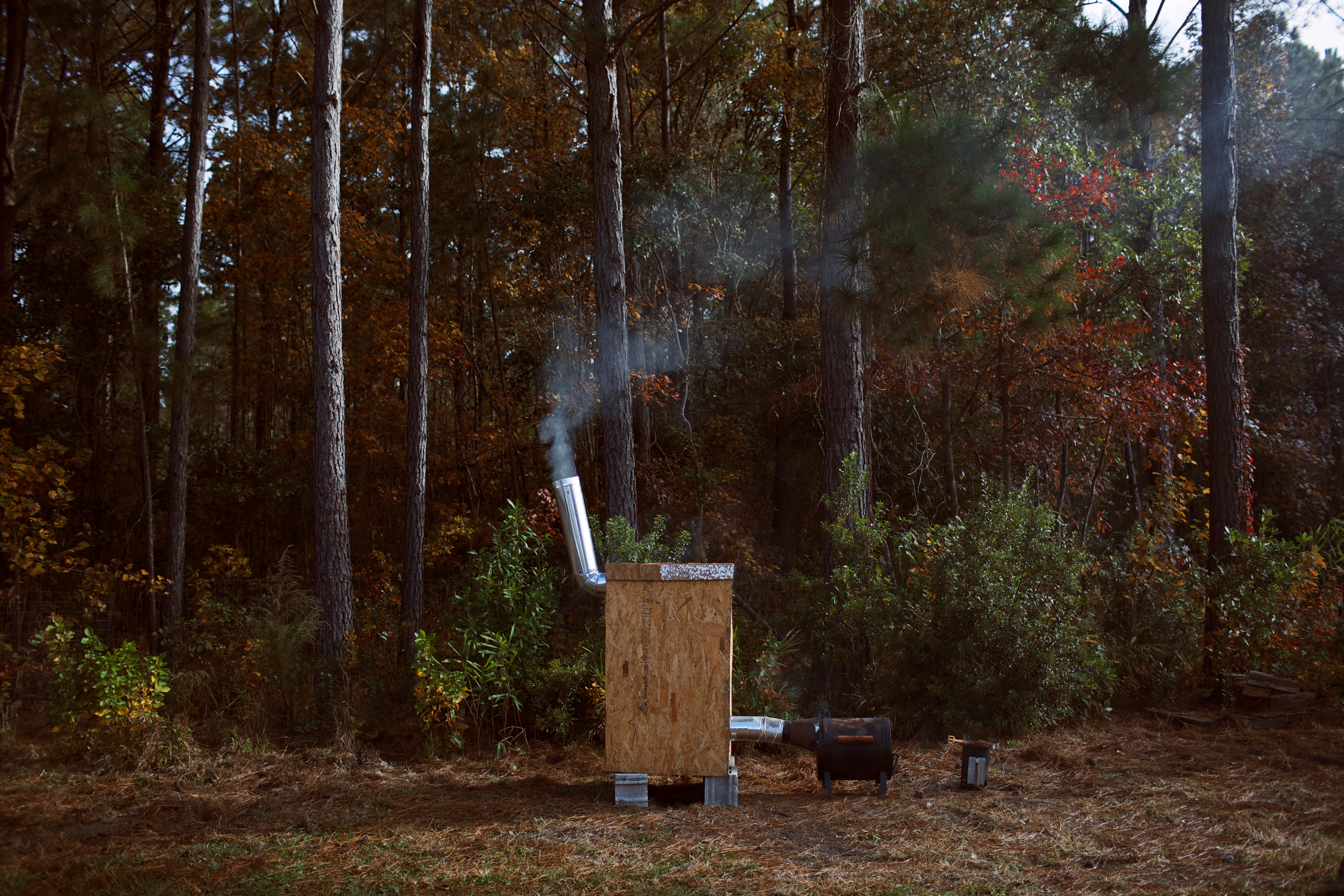
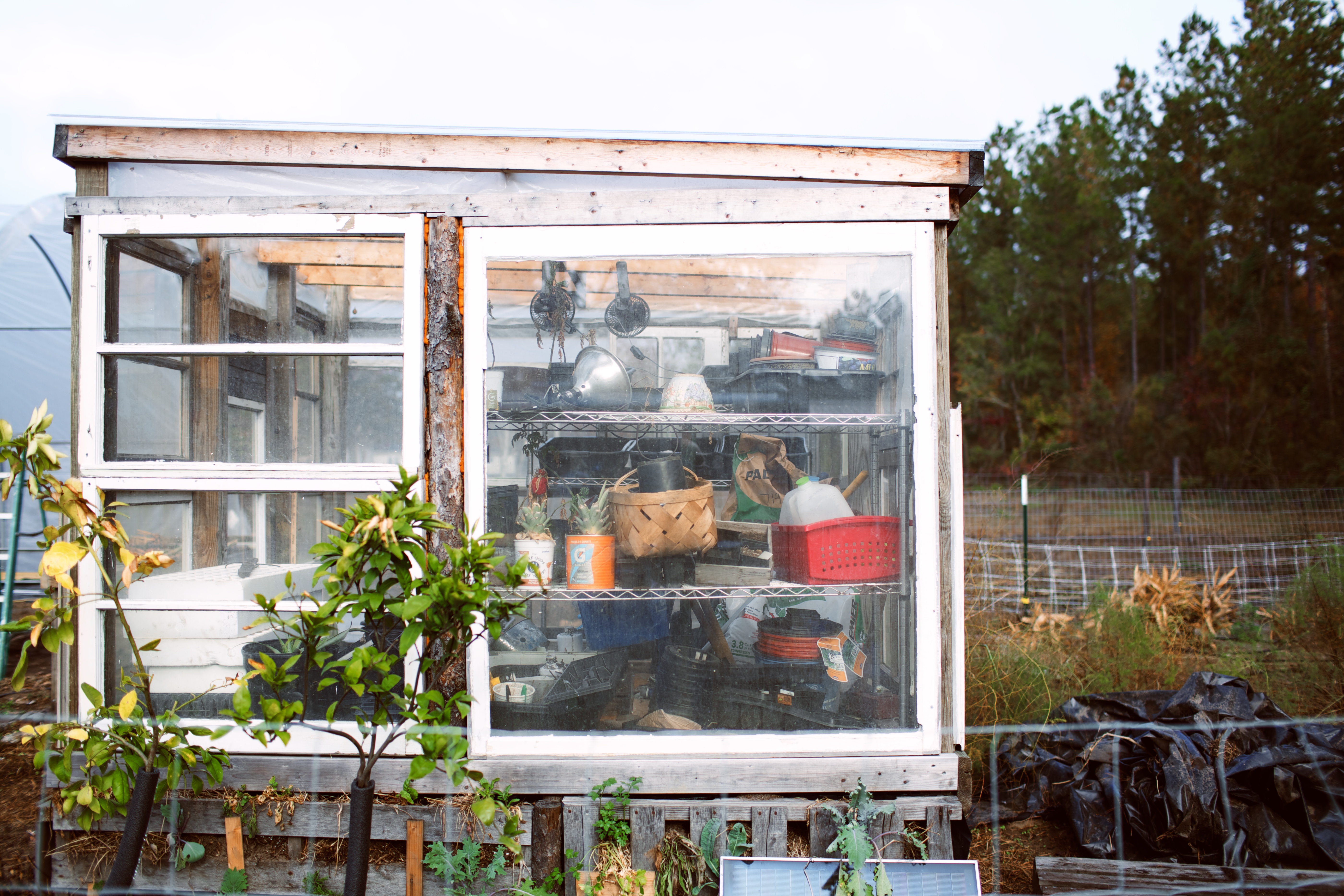
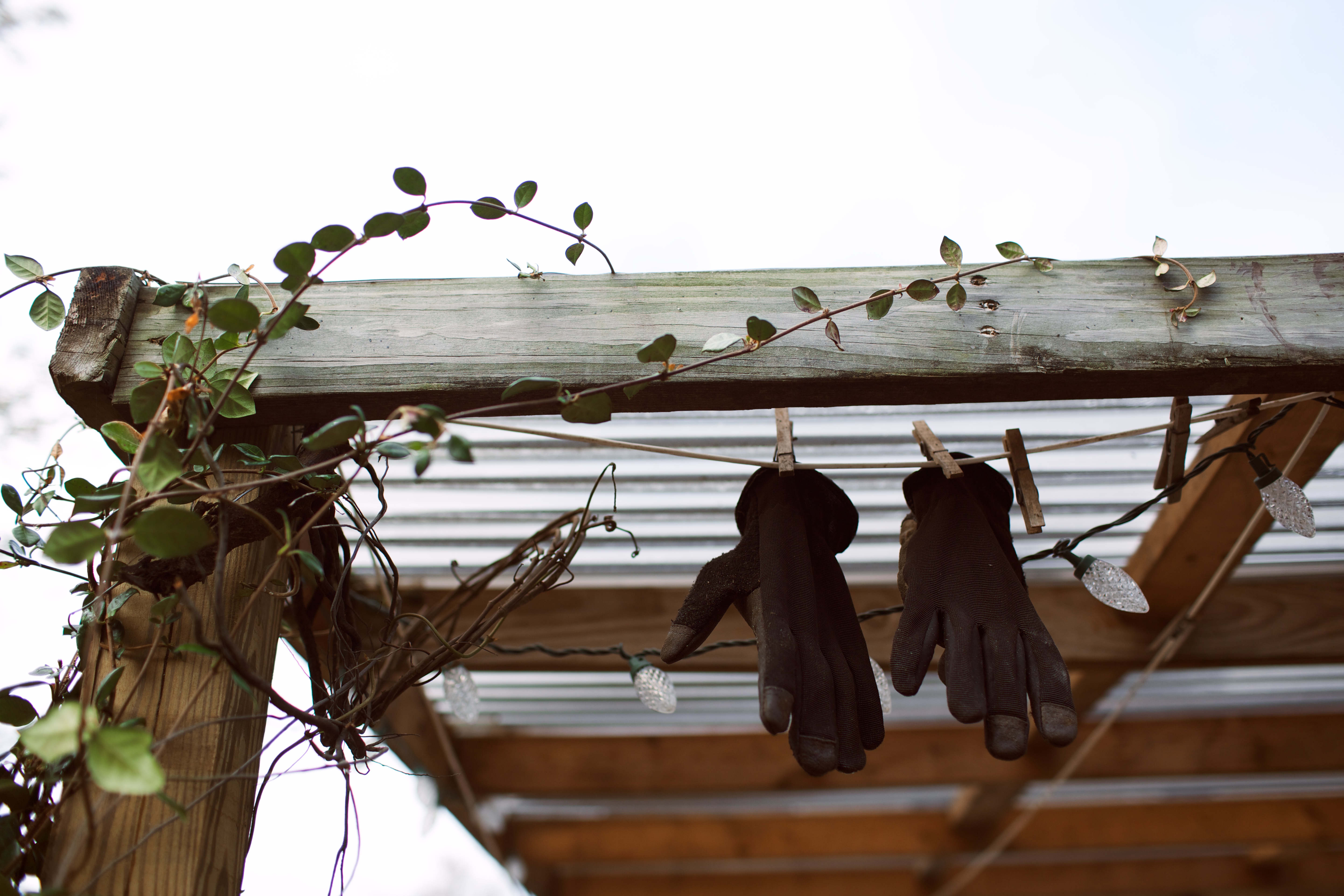
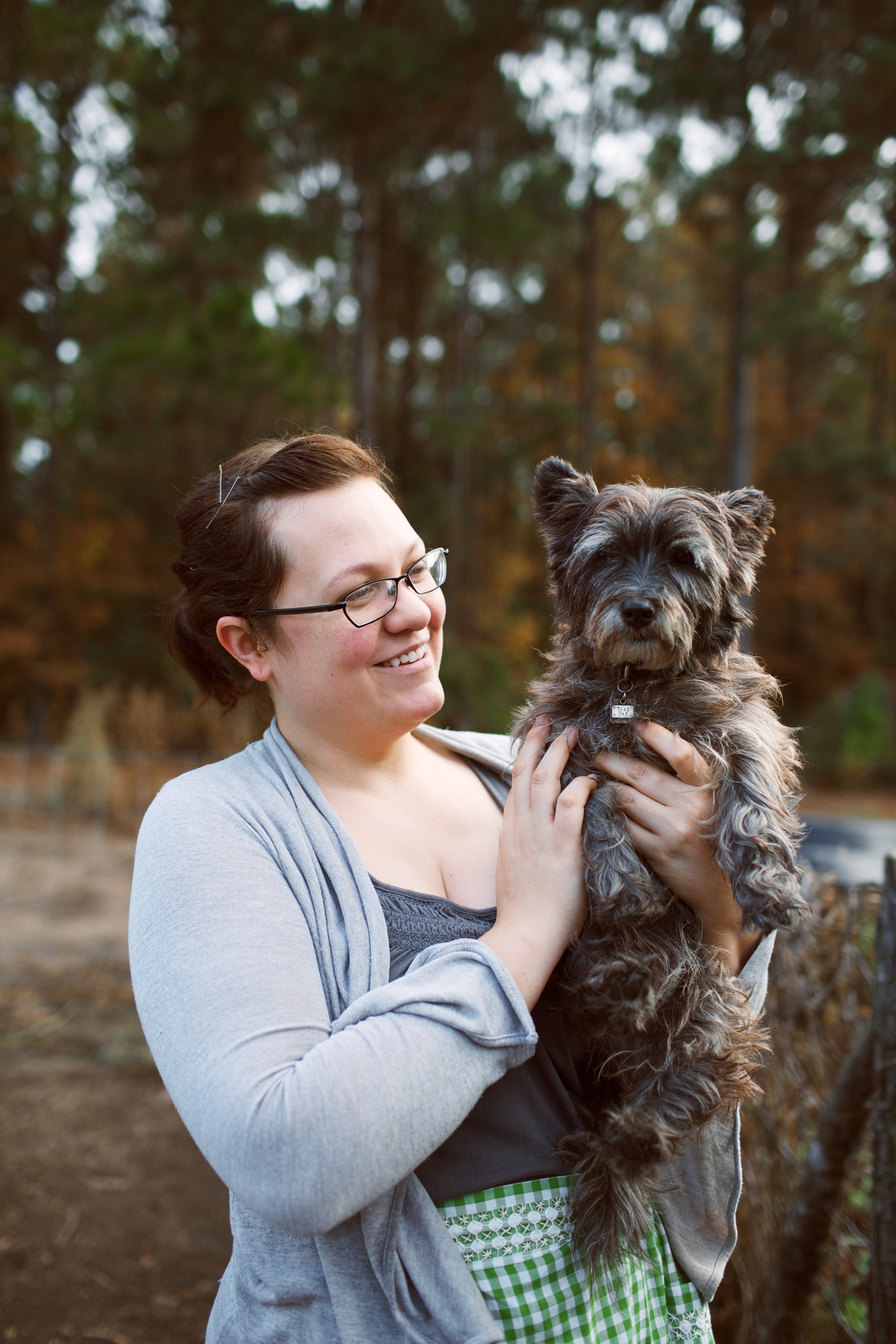
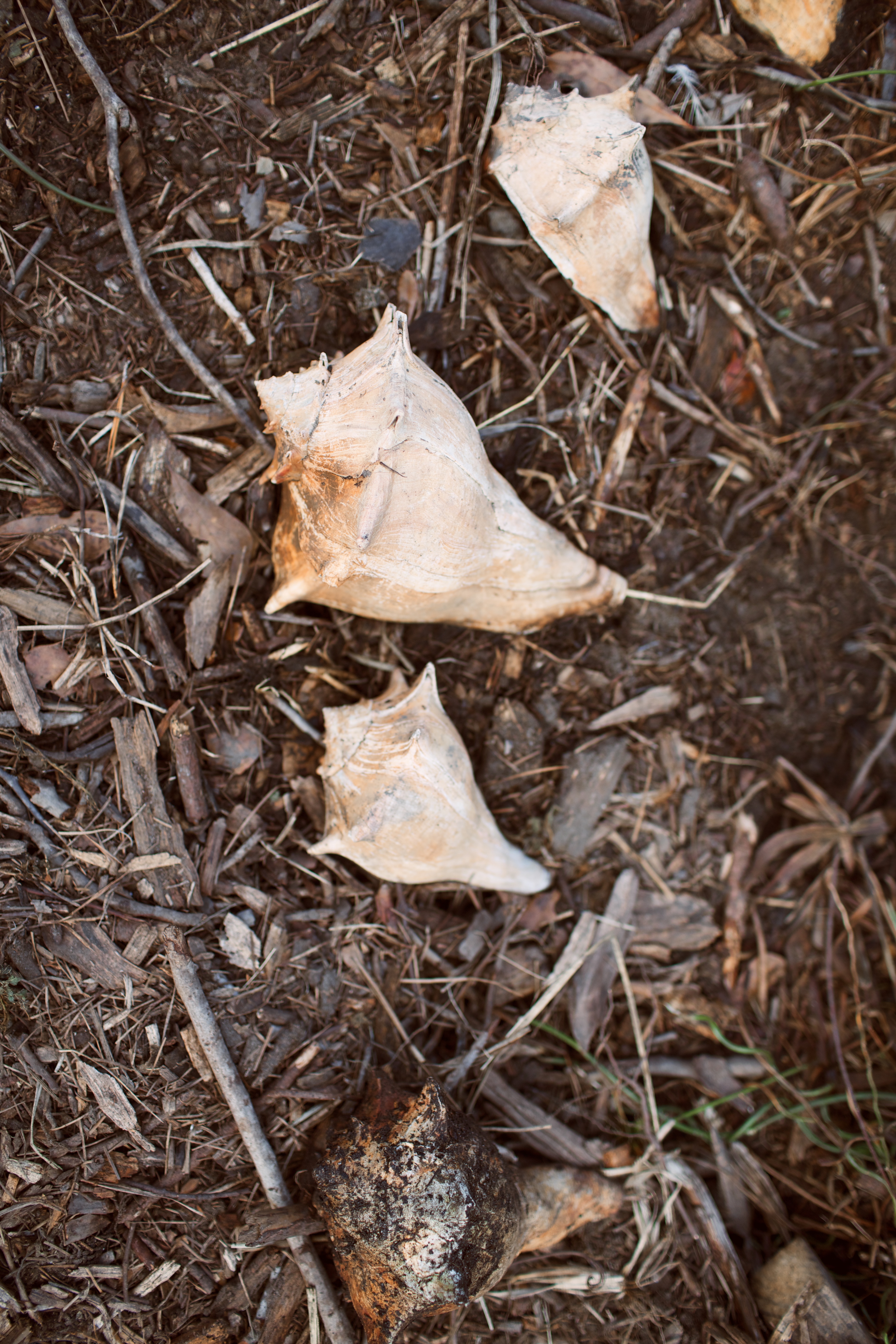
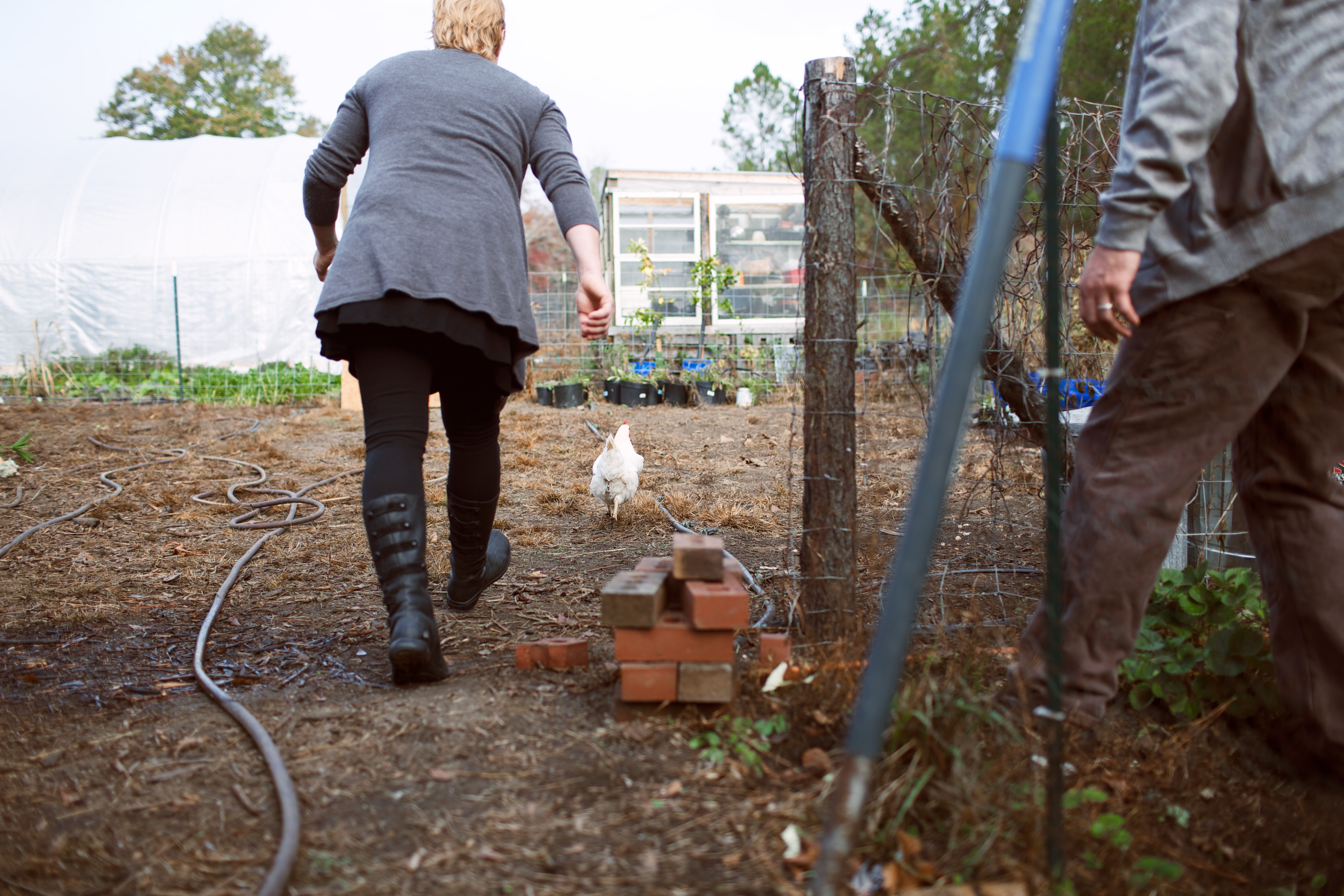
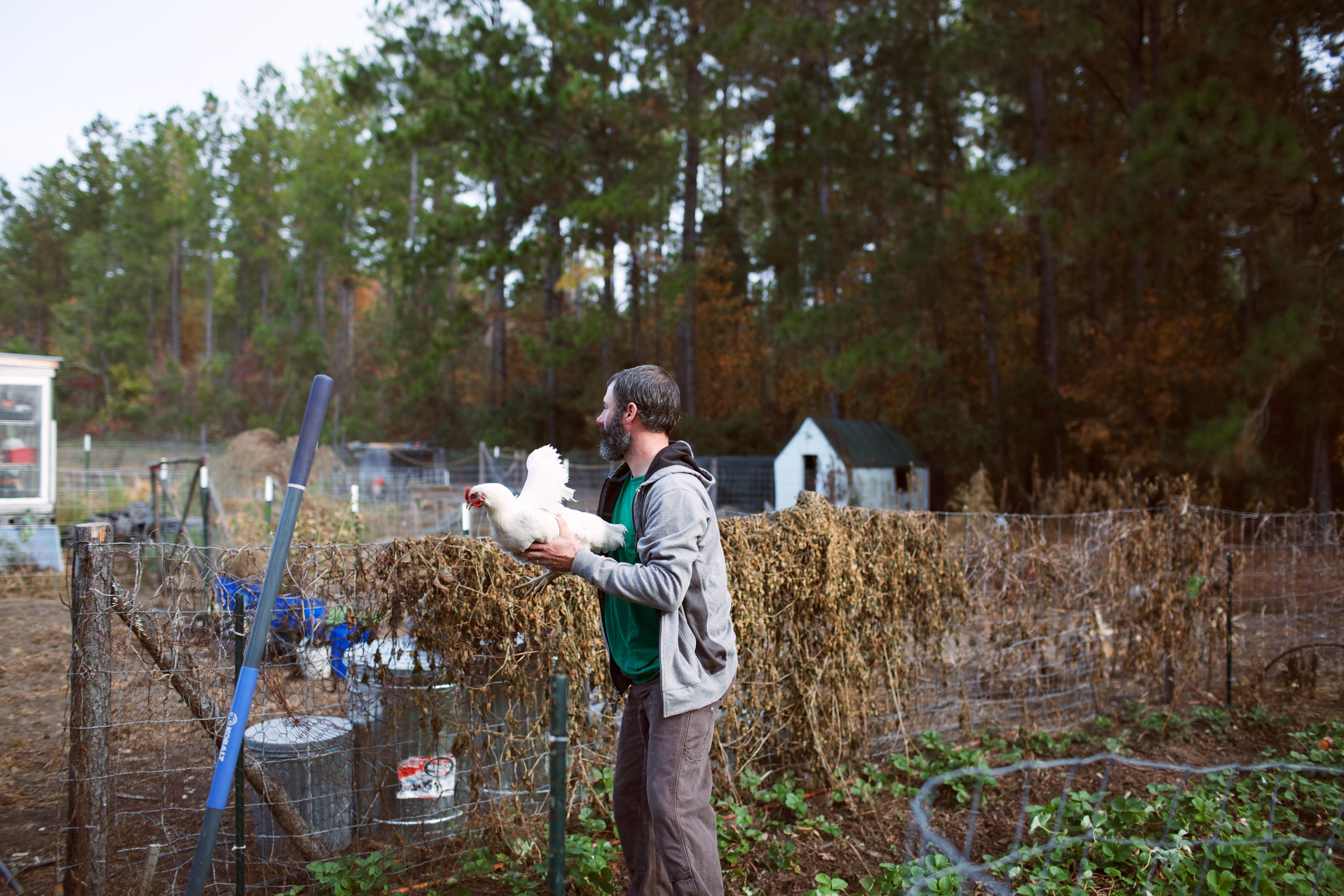
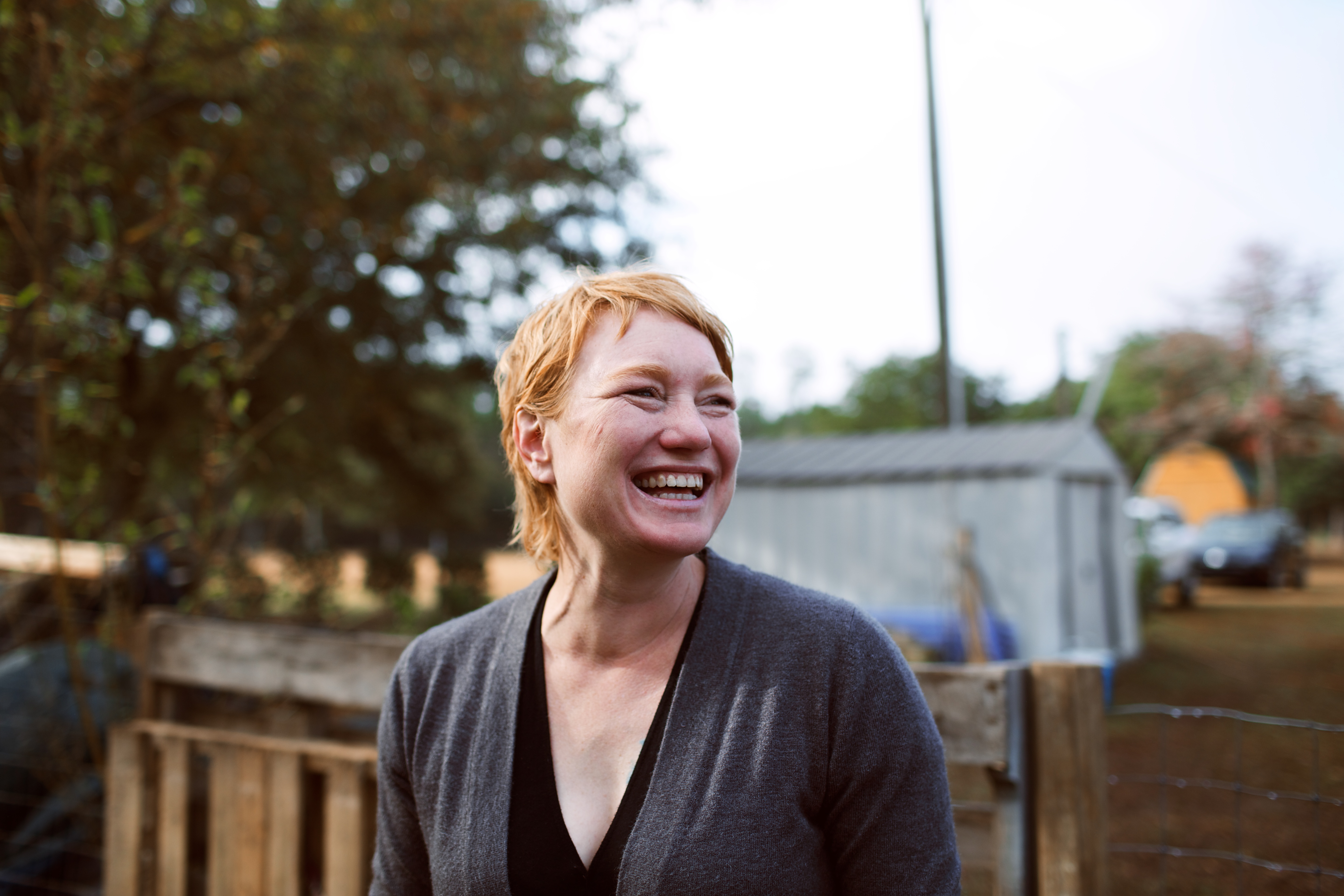
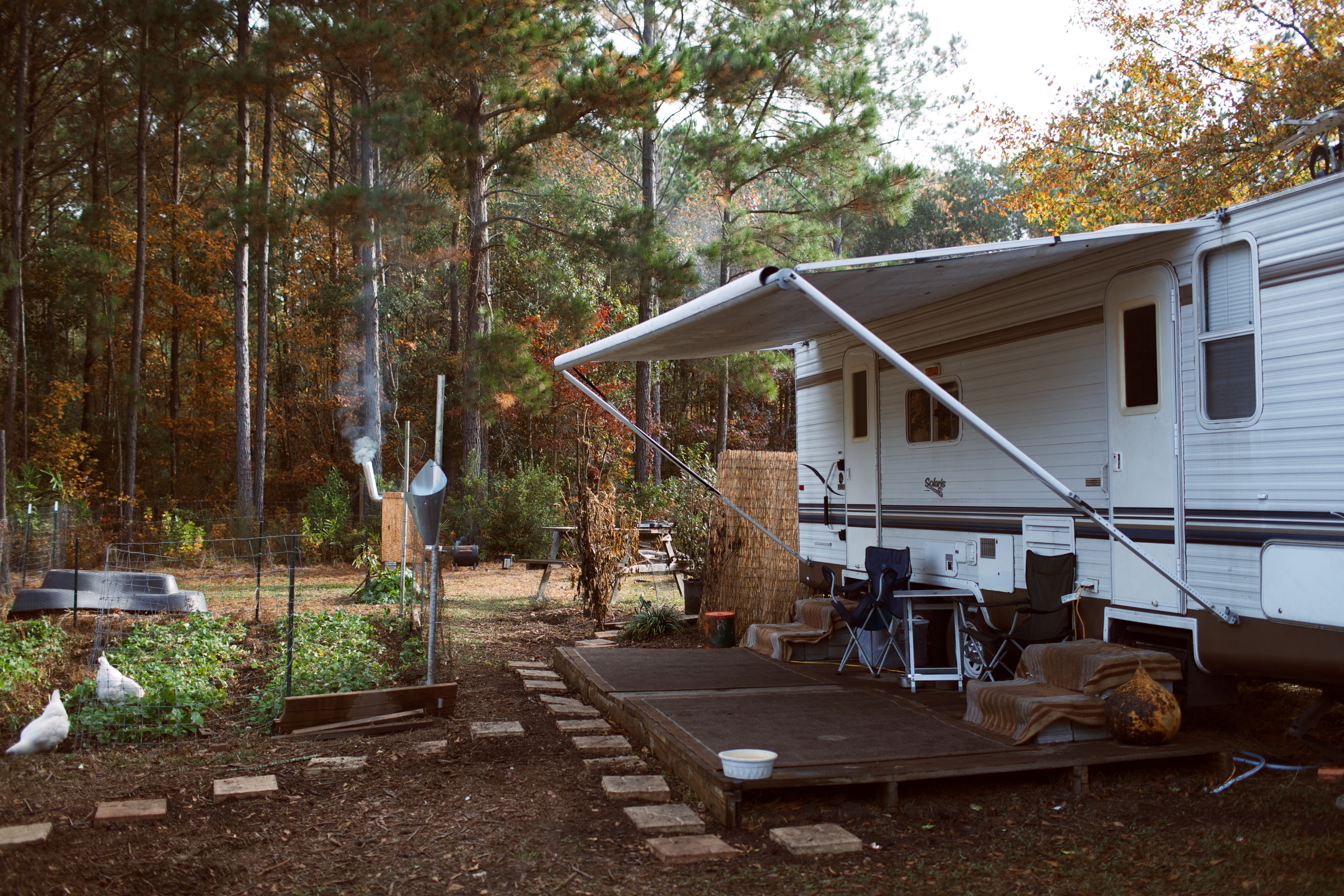
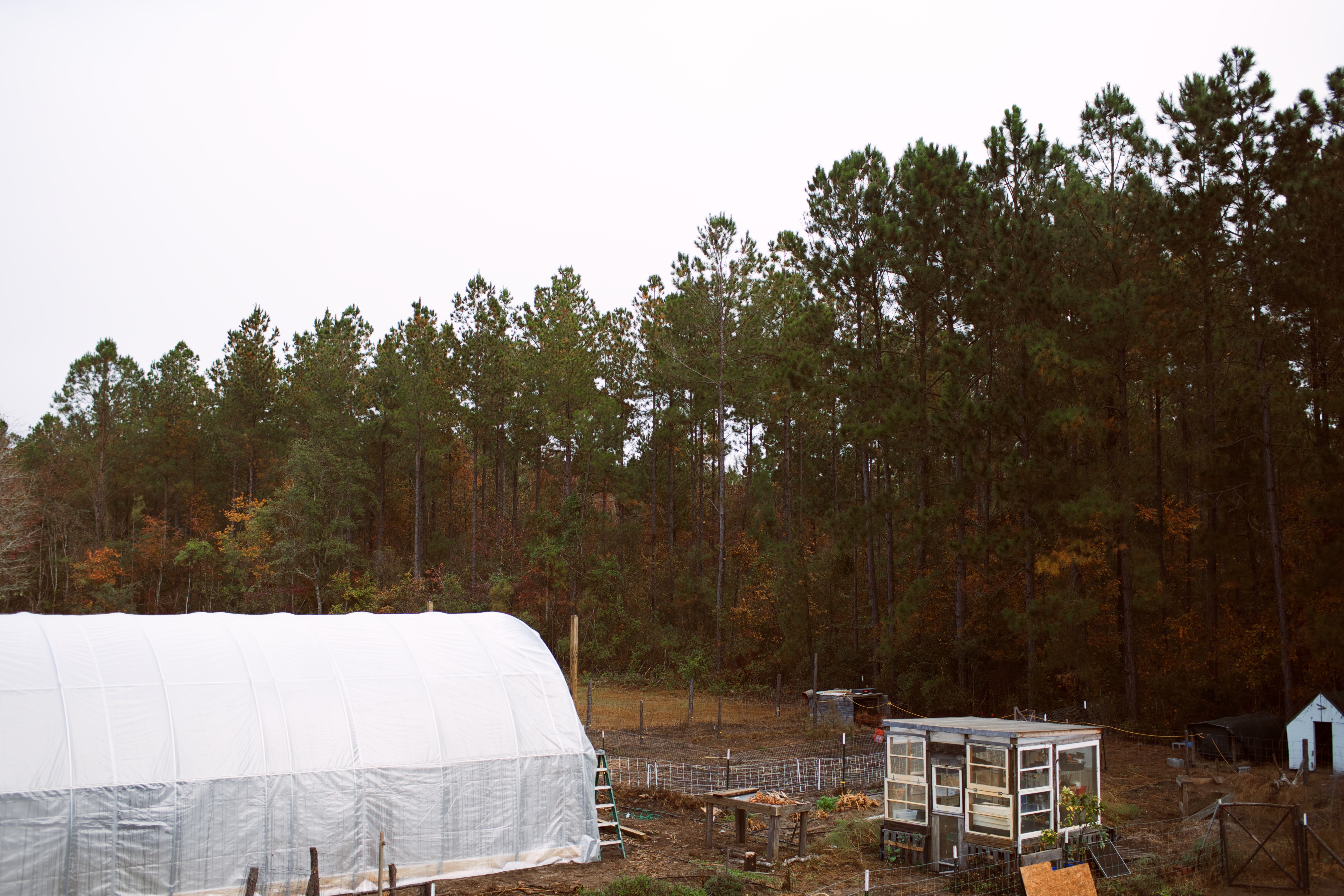
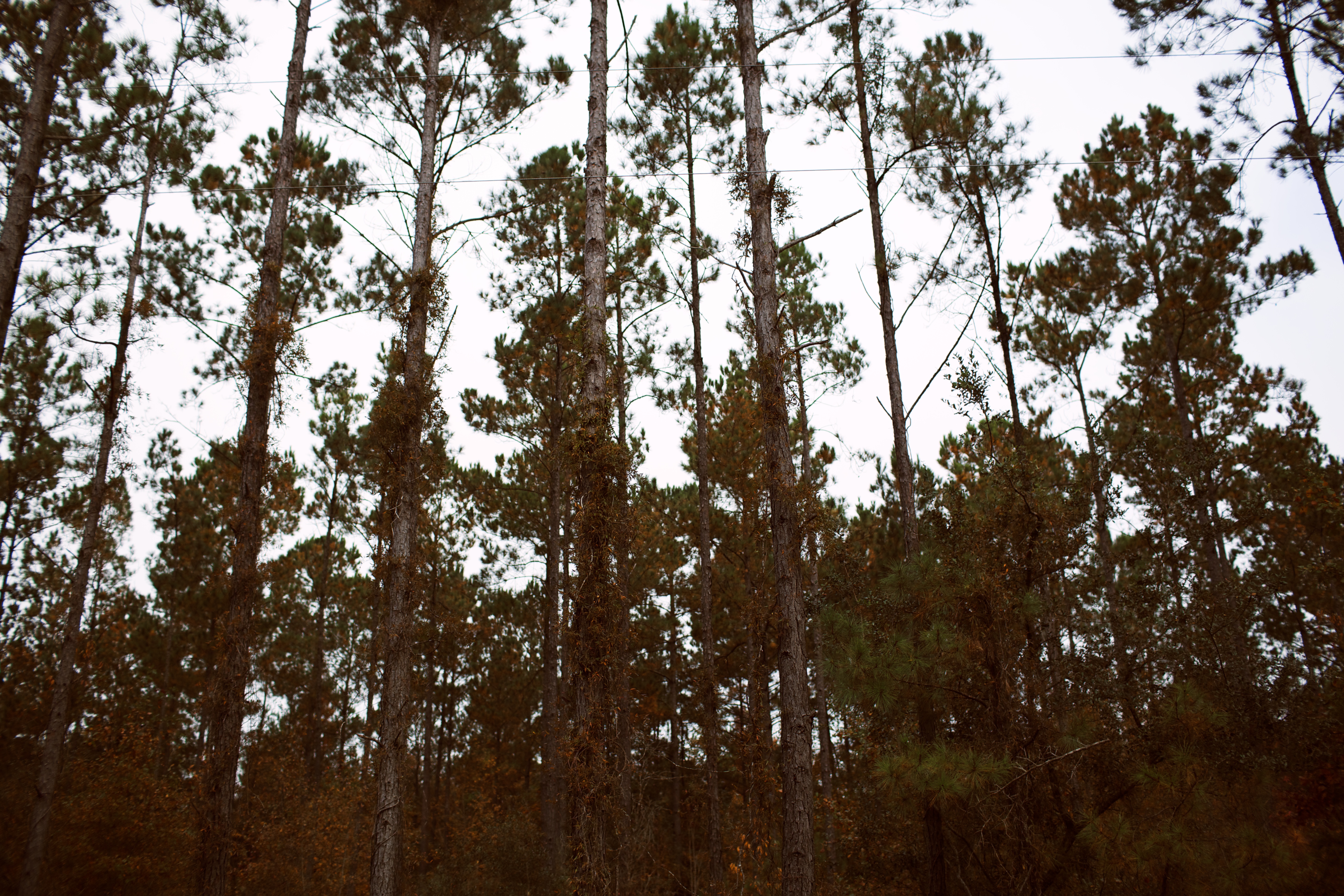
How did you guys meet?
Teresa: Rustin and I met at the Everglades International Hostel in South Florida. I moved down to South Florida to see if I could get work as a guide with the hostel. Rustin had arrived there a few weeks before I did and had been offered the job that I really wanted, but I didn’t have experience for it anyway [laughs]. When we met I asked if I could tag along and be his shadow, and I did.
Rustin, what brought you down to South Florida?
Rustin: I had just got out of the army and had bought a kayak. I had saved up quite a bit of money when I was in the army and when I got out I didn’t want to do anything but have fun.
Teresa: You said you went to the hostel just looking to take a shower, right?
Rustin: Yeah, I hadn’t showered. It had been a couple of weeks. I had been camping in my truck on the side of the road. I was doing quite a bit of hiking along the Blue Ridge Parkway when I decided it was time to get a boat and go to the Everglades.
After meeting, you both journeyed back and forth to Alaska together.
Rustin: Right, so it was a seasonal job in Florida and on the first of April it was time to leave because of the heat and lack of visitors. So I called about a job at a rafting center in Alaska and they offered us the job, so we went and did it.
Teresa: Yeah, so we did that for six years. We drove up to Alaska for the summer and drove back to Florida for the winter.
Did you have your pups traveling with you?
Rustin: We had Daisy with us in a nice little pop-up camper. A 1972 Ford SuperVan.
Teresa: When we bought it, it had a license plate on it that said “The Magic Bus,” it was awesome.
What finally brought you to South Carolina?
Rustin: I had been itching to go back to school and I transferred to Portland State after living in Idaho for a bit. When I was walking into my final exam for wetland ecology I got a call about a job I applied for at Cape Romain National Wildlife Refuge asking me if I would accept the position. So I did.
How long did it take for you both to decide to start harvesting salt and establish Bulls Bay Saltworks?
Rustin: We loved the idea of hosting a thanksgiving and providing everything from our land. So we were playing around on memorial day and thought it would be fun to bring our hog with salt that came from Bulls Bay. We got about three and a half ounces per gallon, so we had a bunch of salt. I put some of it on the smoker as I was smoking the hog and people were loving it. A couple weeks later we thought “well maybe we can make salt for a living. How hard can it be?” Afterall it’s just basic chemistry.
Teresa: Up until then I had been growing and selling produce to GrowFood Carolina, but I started to feel like my input was not equalling my output. Once we started making salt our own interest and the interest from the community was so much greater than when we grew vegetables. I realized we were dividing our energy in too many different ways and if we were to be successful in something we needed to work on it together and do it full time. We were moving in that direction when the fire happened.
Yeah, this past summer your house caught on fire and now you’re sort of restructuring everything?
Rustin: Right.
Could you describe that experience?
Rustin: Once we decided we wanted to produce salt, I started taking business classes. I was taking tests all morning while Teresa was in the garden and right before my next test the fire alarm started to go off. I stood up and saw smoke coming from the laundry so I grabbed a fire extinguisher and it didn’t work. Teresa came up wondering what all of the noise was. I was able to get another fire extinguisher under our kitchen sink, but by then I knew that the house was on fire.
Teresa: Yeah, I had heard the alarms going off, and I thought “Hmm, I wonder what he is cooking.” When I opened the door I saw black smoke coming out of the laundry. There was a lot of cursing and I don’t know what you were yelling, but the fire extinguisher wasn’t working. I found Rustin’s little flip phone and after so many rings 911 finally answered. Then we realized Tiny was under the bed and some bad decisions were made.
Rustin: The 911 operator was yelling “Do not go inside the house!” But there was no stopping Teresa. In my mind I thought “she is going to go in there and die, and then her family is going to hate me forever because I let her die.” I couldn’t live with that, so I pushed through instead of her and found Tiny at the very back of the bed, but I couldn’t get her out. Then the lights went out and at the same time Teresa ran in, so I lifted up the bed and she snatched her and we took off.
How hard was it to bounce back after that and continue producing salt?
Rustin: It took a long time. We lost our business plan in the fire and originally wanted to buy five acres to increase production. But after stepping back and re-evaluating what to do we had an “Aha!” moment. We realized we could do everything we wanted to do on a small scale right here. If we outgrow that then the revenue that we make will be enough to buy an acre and put five or ten hoop houses on. So we’re just bootstrapping it. Making a little money, putting it into the business and growing.
Would you mind giving me a quick rundown of the whole process?
Rustin: First we take an empty container to Bulls Bay. We like to go at the height of the biggest tide of the month which allows you to have more salt in the water. We’ll bring that home. Before we had the hoop house we would put it in trays on a table to evaporate in the sun. Once it starts to drop some salt we filter it and put it into food grade tubs where the salt will start to form, it’ll drop out right away. We’ll wait until there is hardly any water and we’ll put the the salt through a little grader and grade the sizes of the chunks. Once it’s dry it’s ready to be packaged.
How has Charleston welcomed the local salt?
Teresa: Very enthusiastically! When we first started producing salt in 2012 word spread really fast. We started having shops call to carry the salt way before we were ready. That was really exciting because it confirmed the excitement we were already feeling.
How much has changed since your first harvest?
Rustin: It’s a lot easier. We’re learning to streamline the process and put less energy in and let the sun and the wind do all of the work for us. Our job, I guess, is to manage and keep the water clean, so whenever the salt starts to form we have nice clean salt with a taste of Bulls Bay.
Rustin and Teresa it has been an absolute pleasure spending some time with you clamming and talking salt. To find out more about Bulls Bay Saltworks visit their website here.
Photography: Olivia Rae James
Interview: Blake Suarez
